487 papers:
 CASE-2015-MeddouriDF #analysis #generative #induction #performance #predict #using
CASE-2015-MeddouriDF #analysis #generative #induction #performance #predict #using- Performance analysis of an autonomous induction generator under different operating conditions using predictive control (SM, LAD, LF), pp. 1118–1124.
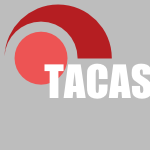 TACAS-2015-MolnarDVB #incremental #induction #ltl #model checking #proving
TACAS-2015-MolnarDVB #incremental #induction #ltl #model checking #proving- Saturation-Based Incremental LTL Model Checking with Inductive Proofs (VM, DD, AV, TB), pp. 643–657.
 PLDI-2015-ChuJT #automation #imperative #induction #proving #source code
PLDI-2015-ChuJT #automation #imperative #induction #proving #source code- Automatic induction proofs of data-structures in imperative programs (DHC, JJ, MTT), pp. 457–466.
 SAS-2015-Brain0KS #invariant #safety #verification
SAS-2015-Brain0KS #invariant #safety #verification- Safety Verification and Refutation by k-Invariants and k-Induction (MB, SJ, DK, PS), pp. 145–161.
 ICFP-2015-DannerLR #functional #induction #semantics
ICFP-2015-DannerLR #functional #induction #semantics- Denotational cost semantics for functional languages with inductive types (ND, DRL, R), pp. 140–151.
 ICGT-2015-DyckG #induction #invariant
ICGT-2015-DyckG #induction #invariant- Inductive Invariant Checking with Partial Negative Application Conditions (JD, HG), pp. 237–253.
 HIMI-IKD-2015-FujinawaSINHTH #behaviour #induction
HIMI-IKD-2015-FujinawaSINHTH #behaviour #induction- Induction of Human Behavior by Presentation of Environmental Acoustics (EF, SS, MI, TN, OH, TT, MH), pp. 582–594.
 HIMI-IKD-2015-IwamotoH #induction #using
HIMI-IKD-2015-IwamotoH #induction #using- Induction of a Relaxed State Using a Vibration Stimulus Based on the Respiratory Cycle (NI, HH), pp. 386–395.
 MLDM-2015-GovadaJMS #approach #hybrid #induction #learning #using
MLDM-2015-GovadaJMS #approach #hybrid #induction #learning #using- Hybrid Approach for Inductive Semi Supervised Learning Using Label Propagation and Support Vector Machine (AG, PJ, SM, SKS), pp. 199–213.
 OOPSLA-2015-PolozovG #framework #induction #named #synthesis
OOPSLA-2015-PolozovG #framework #induction #named #synthesis- FlashMeta: a framework for inductive program synthesis (OP, SG), pp. 107–126.
 PPDP-2015-Cousot #abstract interpretation #induction #verification
PPDP-2015-Cousot #abstract interpretation #induction #verification- Verification by abstract interpretation, soundness and abstract induction (PC), pp. 1–4.
 POPL-2015-Sojakova #algebra #induction
POPL-2015-Sojakova #algebra #induction- Higher Inductive Types as Homotopy-Initial Algebras (KS), pp. 31–42.
 SAC-2015-BasgaluppBP #algorithm #evolution #induction #multi
SAC-2015-BasgaluppBP #algorithm #evolution #induction #multi- Evolving decision-tree induction algorithms with a multi-objective hyper-heuristic (MPB, RCB, VP), pp. 110–117.
 ICSE-v2-2015-SedelmaierL #education #induction #learning #re-engineering
ICSE-v2-2015-SedelmaierL #education #induction #learning #re-engineering- Active and Inductive Learning in Software Engineering Education (YS, DL), pp. 418–427.
 CGO-2015-OanceaR #analysis #induction #scalability
CGO-2015-OanceaR #analysis #induction #scalability- Scalable conditional induction variables (CIV) analysis (CEO, LR), pp. 213–224.
 CADE-2015-PientkaC #induction #programming #proving
CADE-2015-PientkaC #induction #programming #proving- Inductive Beluga: Programming Proofs (BP, AC), pp. 272–281.
 CAV-2015-BeyerW #invariant
CAV-2015-BeyerW #invariant- Boosting k-Induction with Continuously-Refined Invariants (DB, MD, PW), pp. 622–640.
 CSL-2015-Berardi #comprehension #higher-order #induction
CSL-2015-Berardi #comprehension #higher-order #induction- Classical and Intuitionistic Arithmetic with Higher Order Comprehension Coincide on Inductive Well-Foundedness (SB), pp. 343–358.
 VMCAI-2015-Cousot #induction
VMCAI-2015-Cousot #induction- Abstracting Induction by Extrapolation and Interpolation (PC), pp. 19–42.
 VMCAI-2015-ReynoldsK #induction #smt
VMCAI-2015-ReynoldsK #induction #smt- Induction for SMT Solvers (AR, VK), pp. 80–98.
 DAC-2014-ApostolopoulouDES #matrix #scalability #simulation
DAC-2014-ApostolopoulouDES #matrix #scalability #simulation- Selective Inversion of Inductance Matrix for Large-Scale Sparse RLC Simulation (IA, KD, NEE, GIS), p. 6.
 VLDB-2015-ZengPP14 #induction #logic programming #named #scalability
VLDB-2015-ZengPP14 #induction #logic programming #named #scalability- QuickFOIL: Scalable Inductive Logic Programming (QZ, JMP, DP), pp. 197–208.
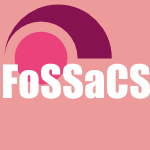 FoSSaCS-2014-AntonopoulosGHKO #induction #logic #problem
FoSSaCS-2014-AntonopoulosGHKO #induction #logic #problem- Foundations for Decision Problems in Separation Logic with General Inductive Predicates (TA, NG, CH, MIK, JO), pp. 411–425.
 SAS-2014-BrotherstonG #abduction #safety #termination
SAS-2014-BrotherstonG #abduction #safety #termination- Cyclic Abduction of Inductively Defined Safety and Termination Preconditions (JB, NG), pp. 68–84.
 FM-2014-LeinoM #automation #induction #proving #verification
FM-2014-LeinoM #automation #induction #proving #verification- Co-induction Simply — Automatic Co-inductive Proofs in a Program Verifier (KRML, MM), pp. 382–398.
 SEFM-2014-TatsutaC #induction #logic #verification
SEFM-2014-TatsutaC #induction #logic #verification- Completeness of Separation Logic with Inductive Definitions for Program Verification (MT, WNC), pp. 20–34.
 ICGT-2014-JansenGN #execution #generative #induction #pointer #source code #symbolic computation
ICGT-2014-JansenGN #execution #generative #induction #pointer #source code #symbolic computation- Generating Inductive Predicates for Symbolic Execution of Pointer-Manipulating Programs (CJ, FG, TN), pp. 65–80.
 CHI-2014-MikkonenGORK #induction #named #open source
CHI-2014-MikkonenGORK #induction #named #open source- OJAS: open source bi-directional inductive power link (JM, RG, MO, HR, AK), pp. 1049–1058.
 HCI-AS-2014-NakanoTA #case study #experience #html #induction #set #user interface
HCI-AS-2014-NakanoTA #case study #experience #html #induction #set #user interface- A Preliminary Study of Relation Induction between HTML Tag Set and User Experience (AN, AT, MA), pp. 49–56.
 KDD-2014-WangNH #adaptation #induction #learning #scalability
KDD-2014-WangNH #adaptation #induction #learning #scalability- Large-scale adaptive semi-supervised learning via unified inductive and transductive model (DW, FN, HH), pp. 482–491.
 KDIR-2014-Nakano #induction #string
KDIR-2014-Nakano #induction #string- Emergent Induction of L-system Grammar from a String with Deletion-type Transmutation (RN), pp. 397–402.
 KDIR-2014-NielandtMBT #induction #xpath
KDIR-2014-NielandtMBT #induction #xpath- Wrapper Induction by XPath Alignment (JN, RDM, AB, GDT), pp. 492–500.
 KR-2014-DeneckerV #induction #principle #revisited #semantics
KR-2014-DeneckerV #induction #principle #revisited #semantics- The Well-Founded Semantics Is the Principle of Inductive Definition, Revisited (MD, JV).
 KR-2014-Lin14a #axiom #first-order #higher-order #induction #semantics
KR-2014-Lin14a #axiom #first-order #higher-order #induction #semantics- A First-Order Semantics for Golog and ConGolog under a Second-Order Induction Axiom for Situations (FL).
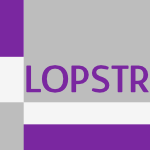 LOPSTR-2014-Balaniuk #induction #synthesis
LOPSTR-2014-Balaniuk #induction #synthesis- Drill and Join: A Method for Exact Inductive Program Synthesis (RB), pp. 219–237.
 PPDP-2014-AotoS #induction #proving #theorem
PPDP-2014-AotoS #induction #proving #theorem- Decision Procedures for Proving Inductive Theorems without Induction (TA, SS), pp. 237–248.
 ICSE-2014-BocicB #induction #invariant #verification #web
ICSE-2014-BocicB #induction #invariant #verification #web- Inductive verification of data model invariants for web applications (IB, TB), pp. 620–631.
 CAV-2014-BirgmeierBW #abstraction #induction
CAV-2014-BirgmeierBW #abstraction #induction- Counterexample to Induction-Guided Abstraction-Refinement (CTIGAR) (JB, ARB, GW), pp. 831–848.
 LICS-CSL-2014-BrotherstonFPG #induction #logic #satisfiability
LICS-CSL-2014-BrotherstonFPG #induction #logic #satisfiability- A decision procedure for satisfiability in separation logic with inductive predicates (JB, CF, JANP, NG), p. 10.
 DAC-2013-CarloYM #3d #induction #integration #on the #power management
DAC-2013-CarloYM #3d #induction #integration #on the #power management- On the potential of 3D integration of inductive DC-DC converter for high-performance power delivery (SC, WY, SM), p. 8.
 TFPIE-2013-Caldwell #functional #induction
TFPIE-2013-Caldwell #functional #induction- Structural Induction Principles for Functional Programmers (JC), pp. 16–26.
 IFM-2013-IshiiMN #automaton #calculus #hybrid #induction #verification
IFM-2013-IshiiMN #automaton #calculus #hybrid #induction #verification- Inductive Verification of Hybrid Automata with Strongest Postcondition Calculus (DI, GM, SN), pp. 139–153.
 IFM-2013-MorgensternGS #game studies #incremental #induction #using
IFM-2013-MorgensternGS #game studies #incremental #induction #using- Solving Games Using Incremental Induction (AM, MG, KS), pp. 177–191.
 ICEIS-v1-2013-FominaEV #concept #induction #modelling
ICEIS-v1-2013-FominaEV #concept #induction #modelling- Noise Models in Inductive Concept Formation (MVF, APE, VNV), pp. 444–450.
 ICEIS-v1-2013-HuangLCW #induction
ICEIS-v1-2013-HuangLCW #induction- A Rule Induction with Hierarchical Decision Attributes (CCH, SHL, ZXC, YPW), pp. 95–102.
 MLDM-2013-OthmanB #induction #reduction
MLDM-2013-OthmanB #induction #reduction- Preceding Rule Induction with Instance Reduction Methods (OO, CHB), pp. 209–218.
 OOPSLA-2013-DilligDLM #abduction #generative #induction #invariant
OOPSLA-2013-DilligDLM #abduction #generative #induction #invariant- Inductive invariant generation via abductive inference (ID, TD, BL, KLM), pp. 443–456.
 POPL-2013-FarzanKP #data flow #graph #induction
POPL-2013-FarzanKP #data flow #graph #induction- Inductive data flow graphs (AF, ZK, AP), pp. 129–142.
 SAC-2013-MartinaP #induction #multi #protocol #security #using #verification
SAC-2013-MartinaP #induction #multi #protocol #security #using #verification- Verifying multicast-based security protocols using the inductive method (JEM, LCP), pp. 1824–1829.
 ICSE-2013-GoodenoughWK #induction
ICSE-2013-GoodenoughWK #induction- Eliminative induction: a basis for arguing system confidence (JBG, CBW, AZK), pp. 1161–1164.
 CADE-2013-ClaessenJRS #automation #induction #proving #using
CADE-2013-ClaessenJRS #automation #induction #proving #using- Automating Inductive Proofs Using Theory Exploration (KC, MJ, DR, NS), pp. 392–406.
 CAV-2013-KloosMNP #incremental #induction
CAV-2013-KloosMNP #incremental #induction- Incremental, Inductive Coverability (JK, RM, FN, RP), pp. 158–173.
 CSL-2013-Leivant #induction #semantics #type system
CSL-2013-Leivant #induction #semantics #type system- Global semantic typing for inductive and coinductive computing (DL), pp. 469–483.
 ICLP-J-2013-JansenJJ #compilation #induction #prolog
ICLP-J-2013-JansenJJ #compilation #induction #prolog- Compiling Input* FO(·) inductive definitions into tabled prolog rules for IDP3 (JJ, AJ, GJ), pp. 691–704.
 TLCA-2013-HancockMGMA #induction #recursion
TLCA-2013-HancockMGMA #induction #recursion- Small Induction Recursion (PH, CM, NG, LM, TA), pp. 156–172.
 DAC-2012-Seshia #deduction #induction #named #synthesis #verification
DAC-2012-Seshia #deduction #induction #named #synthesis #verification- Sciduction: combining induction, deduction, and structure for verification and synthesis (SAS), pp. 356–365.
 FoSSaCS-2012-AtkeyGJJ #induction
FoSSaCS-2012-AtkeyGJJ #induction- Fibrational Induction Meets Effects (RA, NG, BJ, PJ), pp. 42–57.
 PEPM-2012-Katayama #functional #induction #programming #source code
PEPM-2012-Katayama #functional #induction #programming #source code- An analytical inductive functional programming system that avoids unintended programs (SK), pp. 43–52.
 PEPM-2012-Voigtlander #bidirectional #induction #synthesis
PEPM-2012-Voigtlander #bidirectional #induction #synthesis- Ideas for connecting inductive program synthesis and bidirectionalization (JV), pp. 39–42.
 ICML-2012-Nowozin #induction
ICML-2012-Nowozin #induction- Improved Information Gain Estimates for Decision Tree Induction (SN), p. 77.
 ICPR-2012-AtaY #induction
ICPR-2012-AtaY #induction- Searching for the optimal ordering of classes in rule induction (SA, OTY), pp. 1277–1280.
 ICPR-2012-LeeKD #induction #learning
ICPR-2012-LeeKD #induction #learning- Learning action symbols for hierarchical grammar induction (KL, TKK, YD), pp. 3778–3782.
 KDD-2012-ZhangH #induction #learning #multi
KDD-2012-ZhangH #induction #learning #multi- Inductive multi-task learning with multiple view data (JZ, JH), pp. 543–551.
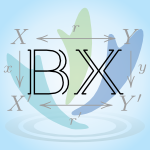 BX-2012-PachecoCH #induction #lens
BX-2012-PachecoCH #induction #lens- Delta Lenses over Inductive Types (HP, AC, ZH), pp. 21–37.
 POPL-2012-MadhusudanQS #induction #proving #recursion
POPL-2012-MadhusudanQS #induction #proving #recursion- Recursive proofs for inductive tree data-structures (PM, XQ, AS), pp. 123–136.
 CAV-2012-Bradley #incremental #induction #verification
CAV-2012-Bradley #incremental #induction #verification- IC3 and beyond: Incremental, Inductive Verification (ARB), p. 4.
 CAV-2012-HassanBS #incremental #induction #model checking
CAV-2012-HassanBS #incremental #induction #model checking- Incremental, Inductive CTL Model Checking (ZH, ARB, FS), pp. 532–547.
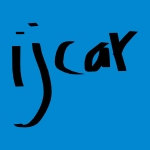 IJCAR-2012-FalkeK #induction #linear
IJCAR-2012-FalkeK #induction #linear- Rewriting Induction + Linear Arithmetic = Decision Procedure (SF, DK), pp. 241–255.
 LICS-2012-Aumann #game studies #induction
LICS-2012-Aumann #game studies #induction- Backward induction in games of perfect information (RJA), p. 1.
 LICS-2012-AwodeyGS #induction #type system
LICS-2012-AwodeyGS #induction #type system- Inductive Types in Homotopy Type Theory (SA, NG, KS), pp. 95–104.
 LICS-2012-Schuster #algebra #case study #induction
LICS-2012-Schuster #algebra #case study #induction- Induction in Algebra: A First Case Study (PS), pp. 581–585.
 VMCAI-2012-Leino #automation #induction #smt
VMCAI-2012-Leino #automation #induction #smt- Automating Induction with an SMT Solver (KRML), pp. 315–331.
 FoSSaCS-2011-AtkeyJG #induction #question #refinement
FoSSaCS-2011-AtkeyJG #induction #question #refinement- When Is a Type Refinement an Inductive Type? (RA, PJ, NG), pp. 72–87.
 PLDI-2011-SrivastavaGCF #induction #synthesis
PLDI-2011-SrivastavaGCF #induction #synthesis- Path-based inductive synthesis for program inversion (SS, SG, SC, JSF), pp. 492–503.
 SAS-2011-DonaldsonHKR #using #verification
SAS-2011-DonaldsonHKR #using #verification- Software Verification Using k-Induction (AFD, LH, DK, PR), pp. 351–368.
 ICFP-2011-AhnS #combinator #data type #induction #recursion
ICFP-2011-AhnS #combinator #data type #induction #recursion- A hierarchy of mendler style recursion combinators: taming inductive datatypes with negative occurrences (KYA, TS), pp. 234–246.
 AGTIVE-2011-FurstMM #graph grammar #heuristic #induction #process
AGTIVE-2011-FurstMM #graph grammar #heuristic #induction #process- Graph Grammar Induction as a Parser-Controlled Heuristic Search Process (LF, MM, VM), pp. 121–136.
 HCI-DDA-2011-YinR #elicitation #induction
HCI-DDA-2011-YinR #elicitation #induction- An Inductive Inference Model to Elicit Noncompensatory Judgment Strategies (JY, LR), pp. 414–422.
 KDD-2011-RashidiC #induction #learning #query
KDD-2011-RashidiC #induction #learning #query- Ask me better questions: active learning queries based on rule induction (PR, DJC), pp. 904–912.
 ICLP-2011-AlrajehKRU #approach #induction #refinement
ICLP-2011-AlrajehKRU #approach #induction #refinement- An Inductive Approach for Modal Transition System Refinement (DA, JK, AR, SU), pp. 106–116.
 ICLP-J-2011-CorapiRVPS #design #induction #learning #using
ICLP-J-2011-CorapiRVPS #design #induction #learning #using- Normative design using inductive learning (DC, AR, MDV, JAP, KS), pp. 783–799.
 ICLP-J-2011-Haemmerle11a #constraints #induction #semantics
ICLP-J-2011-Haemmerle11a #constraints #induction #semantics- (Co-)Inductive semantics for Constraint Handling Rules (RH), pp. 593–609.
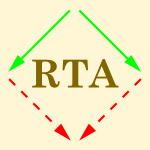 RTA-2011-AotoYC #higher-order #induction #theorem
RTA-2011-AotoYC #higher-order #induction #theorem- Natural Inductive Theorems for Higher-Order Rewriting (TA, TY, YC), pp. 107–121.
 VMCAI-2011-DonaldsonHK #lightweight #static analysis
VMCAI-2011-DonaldsonHK #lightweight #static analysis- Strengthening Induction-Based Race Checking with Lightweight Static Analysis (AFD, LH, DK), pp. 169–183.
 DAC-2010-ThalmaierNWSBK #induction #invariant #satisfiability
DAC-2010-ThalmaierNWSBK #induction #invariant #satisfiability- Analyzing k-step induction to compute invariants for SAT-based property checking (MT, MDN, MW, DS, JB, WK), pp. 176–181.
 PASTE-2010-CalmanZ #analysis #induction #information retrieval #interprocedural
PASTE-2010-CalmanZ #analysis #induction #information retrieval #interprocedural- Interprocedural induction variable analysis based on interprocedural SSA form IR (SC, JZ), pp. 37–44.
 PEPM-2010-Hofmann #functional #induction #named #programming
PEPM-2010-Hofmann #functional #induction #named #programming- IGOR2 — an analytical inductive functional programming system: tool demo (MH0), pp. 29–32.
 IFM-2010-Stratulat #induction #proving
IFM-2010-Stratulat #induction #proving- Integrating Implicit Induction Proofs into Certified Proof Environments (SS), pp. 320–335.
 CIKM-2010-CumminsLO #induction #information retrieval #perspective #process
CIKM-2010-CumminsLO #induction #information retrieval #perspective #process- Examining the information retrieval process from an inductive perspective (RC, ML, CO), pp. 89–98.
 CIKM-2010-SotoudehA #detection #framework #induction #using
CIKM-2010-SotoudehA #detection #framework #induction #using- Partial drift detection using a rule induction framework (DS, AA), pp. 769–778.
 ICML-2010-OntanonP #approach #induction #learning #multi
ICML-2010-OntanonP #approach #induction #learning #multi- Multiagent Inductive Learning: an Argumentation-based Approach (SO, EP), pp. 839–846.
 KDIR-2010-NakanoY #induction
KDIR-2010-NakanoY #induction- Number Theory-based Induction of Deterministic Context-free L-system Grammar (RN, NY), pp. 194–199.
 OOPSLA-2010-ItzhakyGIS #induction #synthesis
OOPSLA-2010-ItzhakyGIS #induction #synthesis- A simple inductive synthesis methodology and its applications (SI, SG, NI, MS), pp. 36–46.
 LOPSTR-2010-Seki #induction #on the #proving
LOPSTR-2010-Seki #induction #on the #proving- On Inductive Proofs by Extended Unfold/Fold Transformation Rules (HS), pp. 117–132.
 SAC-2010-BarrosBRCF #induction
SAC-2010-BarrosBRCF #induction- Evolutionary model tree induction (RCB, MPB, DDR, ACPLFdC, AAF), pp. 1131–1137.
 SAC-2010-dAmatoEFFGL #induction #reasoning #semantics #web
SAC-2010-dAmatoEFFGL #induction #reasoning #semantics #web- Inductive reasoning and semantic web search (Cd, FE, NF, BF, GG, TL), pp. 1446–1447.
 SAC-2010-FanizzidE #induction #towards
SAC-2010-FanizzidE #induction #towards- Towards the induction of terminological decision trees (NF, Cd, FE), pp. 1423–1427.
 SAC-2010-LimaEF #adaptation #induction #information management
SAC-2010-LimaEF #adaptation #induction #information management- An adaptive information extraction system based on wrapper induction with POS tagging (RL, BE, FLGdF), pp. 1815–1820.
 CAV-2010-ChatterjeeK #architecture #automation #communication #generative #induction #invariant #modelling
CAV-2010-ChatterjeeK #architecture #automation #communication #generative #induction #invariant #modelling- Automatic Generation of Inductive Invariants from High-Level Microarchitectural Models of Communication Fabrics (SC, MK), pp. 321–338.
 CSL-2010-ForsbergS #induction
CSL-2010-ForsbergS #induction- Inductive-Inductive Definitions (FNF, AS), pp. 454–468.
 CSL-2010-GanzowK #algorithm #higher-order #induction #logic #monad
CSL-2010-GanzowK #algorithm #higher-order #induction #logic #monad- New Algorithm for Weak Monadic Second-Order Logic on Inductive Structures (TG, LK), pp. 366–380.
 CSL-2010-GhaniJF #algebra #induction
CSL-2010-GhaniJF #algebra #induction- Fibrational Induction Rules for Initial Algebras (NG, PJ, CF), pp. 336–350.
 CSL-2010-OHearn #abduction #deduction #induction #reasoning
CSL-2010-OHearn #abduction #deduction #induction #reasoning- Abductive, Inductive and Deductive Reasoning about Resources (PWO), pp. 49–50.
 ICLP-2010-CorapiRL10 #abduction #induction #logic programming
ICLP-2010-CorapiRL10 #abduction #induction #logic programming- Inductive Logic Programming as Abductive Search (DC, AR, EL), pp. 54–63.
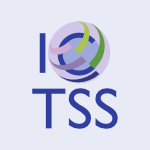 ICTSS-2010-WalkinshawBDP #case study #functional #induction #testing
ICTSS-2010-WalkinshawBDP #case study #functional #induction #testing- Increasing Functional Coverage by Inductive Testing: A Case Study (NW, KB, JD, JP), pp. 126–141.
 IJCAR-2010-Aderhold #automation #axiom #higher-order #induction #recursion #source code #synthesis
IJCAR-2010-Aderhold #automation #axiom #higher-order #induction #recursion #source code #synthesis- Automated Synthesis of Induction Axioms for Programs with Second-Order Recursion (MA), pp. 263–277.
 IJCAR-2010-BaeldeMS #induction #proving #theorem proving
IJCAR-2010-BaeldeMS #induction #proving #theorem proving- Focused Inductive Theorem Proving (DB, DM, ZS), pp. 278–292.
 IJCAR-2010-Kapur #abstraction #induction #invariant
IJCAR-2010-Kapur #abstraction #induction #invariant- Induction, Invariants, and Abstraction (DK), p. 353.
 TAP-2010-Blanchette #algebra #analysis #data type #induction #recursion #relational
TAP-2010-Blanchette #algebra #analysis #data type #induction #recursion #relational- Relational Analysis of (Co)inductive Predicates, (Co)algebraic Datatypes, and (Co)recursive Functions (JCB), pp. 117–134.
 ICDAR-2009-SantoshLR #induction #logic programming #recognition
ICDAR-2009-SantoshLR #induction #logic programming #recognition- Inductive Logic Programming for Symbol Recognition (KCS, BL, JPR), pp. 1330–1334.
 CSEET-2009-SkandanS #case study #education #experience #induction #re-engineering
CSEET-2009-SkandanS #case study #education #experience #induction #re-engineering- Software Engineering Education at TCS Induction — An Experience Report (SS, MS), pp. 16–19.
 ESOP-2009-LakinP #functional #higher-order #induction #programming
ESOP-2009-LakinP #functional #higher-order #induction #programming- Resolving Inductive Definitions with Binders in Higher-Order Typed Functional Programming (MRL, AMP), pp. 47–61.
 CIKM-2009-ZhengSWG #induction #performance
CIKM-2009-ZhengSWG #induction #performance- Efficient record-level wrapper induction (SZ, RS, JRW, CLG), pp. 47–56.
 MLDM-2009-StahlBA #classification #composition #framework #induction #named #parallel
MLDM-2009-StahlBA #classification #composition #framework #induction #named #parallel- PMCRI: A Parallel Modular Classification Rule Induction Framework (FTS, MAB, MA), pp. 148–162.
 SIGIR-2009-YangC #automation #feature model #induction #taxonomy
SIGIR-2009-YangC #automation #feature model #induction #taxonomy- Feature selection for automatic taxonomy induction (HY, JC), pp. 684–685.
 LOPSTR-2009-Seki #induction #on the #proving
LOPSTR-2009-Seki #induction #on the #proving- On Inductive and Coinductive Proofs via Unfold/Fold Transformations (HS), pp. 82–96.
 PPDP-2009-EastlundF #composition #induction
PPDP-2009-EastlundF #composition #induction- Making induction manifest in modular ACL2 (CE, MF), pp. 105–116.
 SAC-2009-BasgaluppBCFR #algorithm #induction #multi #named #search-based
SAC-2009-BasgaluppBCFR #algorithm #induction #multi #named #search-based- LEGAL-tree: a lexicographic multi-objective genetic algorithm for decision tree induction (MPB, RCB, ACPLFdC, AAF, DDR), pp. 1085–1090.
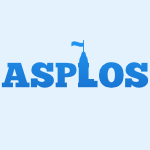 ASPLOS-2009-CameronL #architecture #induction #parallel #principle
ASPLOS-2009-CameronL #architecture #induction #parallel #principle- Architectural support for SWAR text processing with parallel bit streams: the inductive doubling principle (RDC, DL), pp. 337–348.
 CADE-2009-SwiderskiPGFS #analysis #dependence #induction #proving #termination #theorem proving
CADE-2009-SwiderskiPGFS #analysis #dependence #induction #proving #termination #theorem proving- Termination Analysis by Dependency Pairs and Inductive Theorem Proving (SS, MP, JG, CF, PSK), pp. 322–338.
 CAV-2009-FuhrmannH #bound #induction #on the #proving
CAV-2009-FuhrmannH #bound #induction #on the #proving- On Extending Bounded Proofs to Inductive Proofs (OF, SH), pp. 278–290.
 CSL-2009-HorbachW #induction #query
CSL-2009-HorbachW #induction #query- Deciding the Inductive Validity of FOR ALL THERE EXISTS * Queries (MH, CW), pp. 332–347.
 LICS-2009-Leroux #induction #invariant #problem #reachability
LICS-2009-Leroux #induction #invariant #problem #reachability- The General Vector Addition System Reachability Problem by Presburger Inductive Invariants (JL), pp. 4–13.
 RTA-2009-KimuraT #calculus #induction
RTA-2009-KimuraT #calculus #induction- Dual Calculus with Inductive and Coinductive Types (DK, MT), pp. 224–238.
 TLCA-2009-SarnatS #induction
TLCA-2009-SarnatS #induction- Lexicographic Path Induction (JS, CS), pp. 279–293.
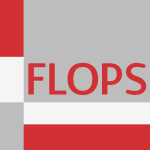 FLOPS-2008-Julien #induction #integer #using
FLOPS-2008-Julien #induction #integer #using- Certified Exact Real Arithmetic Using Co-induction in Arbitrary Integer Base (NJ), pp. 48–63.
 ICGT-2008-Echahed #graph grammar #term rewriting
ICGT-2008-Echahed #graph grammar #term rewriting- Inductively Sequential Term-Graph Rewrite Systems (RE), pp. 84–98.
 ICML-2008-RaykarKBDR #automation #feature model #induction #learning #multi
ICML-2008-RaykarKBDR #automation #feature model #induction #learning #multi- Bayesian multiple instance learning: automatic feature selection and inductive transfer (VCR, BK, JB, MD, RBR), pp. 808–815.
 KDD-2008-BlockeelCFGPR #database #induction #mining #prototype
KDD-2008-BlockeelCFGPR #database #induction #mining #prototype- An inductive database prototype based on virtual mining views (HB, TC, ÉF, BG, AP, CR), pp. 1061–1064.
 KR-2008-MagnussonD #deduction #induction
KR-2008-MagnussonD #deduction #induction- Deductive Planning with Inductive Loops (MM, PD), pp. 528–534.
 LOPSTR-2008-Kitzelmann #functional #induction #programming
LOPSTR-2008-Kitzelmann #functional #induction #programming- Analytical Inductive Functional Programming (EK), pp. 87–102.
 POPL-2008-ChangR #analysis #induction #relational
POPL-2008-ChangR #analysis #induction #relational- Relational inductive shape analysis (BYEC, XR), pp. 247–260.
 ICSE-2008-SankaranarayananIG #induction #library #logic programming #mining #specification #using
ICSE-2008-SankaranarayananIG #induction #library #logic programming #mining #specification #using- Mining library specifications using inductive logic programming (SS, FI, AG), pp. 131–140.
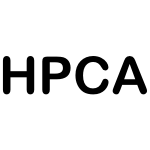 HPCA-2008-GuptaRSWB #commit #induction #named
HPCA-2008-GuptaRSWB #commit #induction #named- DeCoR: A Delayed Commit and Rollback mechanism for handling inductive noise in processors (MSG, KKR, MDS, GYW, DMB), pp. 381–392.
 IJCAR-2008-BouhoulaJ #automation #automaton #induction
IJCAR-2008-BouhoulaJ #automation #automaton #induction- Automated Induction with Constrained Tree Automata (AB, FJ), pp. 539–554.
 RTA-2008-Stratulat #induction
RTA-2008-Stratulat #induction- Combining Rewriting with Noetherian Induction to Reason on Non-orientable Equalities (SS), pp. 351–365.
 SAT-2008-MarienWDB #induction #logic #satisfiability
SAT-2008-MarienWDB #induction #logic #satisfiability- SAT(ID): Satisfiability of Propositional Logic Extended with Inductive Definitions (MM, JW, MD, MB), pp. 211–224.
 TAP-2008-ClaessenS #induction #proving
TAP-2008-ClaessenS #induction #proving- Finding Counter Examples in Induction Proofs (KC, HS), pp. 48–65.
 VMCAI-2008-Cousot #abstract interpretation #semantics
VMCAI-2008-Cousot #abstract interpretation #semantics- Abstract Interpretation of Non-monotone Bi-inductive Semantic Definitions (RC), pp. 1–3.
 DAC-2007-RoyMC #nondeterminism
DAC-2007-RoyMC #nondeterminism- Effects of Coupling Capacitance and Inductance on Delay Uncertainty and Clock Skew (AR, NHM, MHC), pp. 184–187.
 DATE-2007-CabodiNQ #induction #invariant #model checking
DATE-2007-CabodiNQ #induction #invariant #model checking- Boosting the role of inductive invariants in model checking (GC, SN, SQ), pp. 1319–1324.
 PLDI-2007-GuoVA #analysis #induction #recursion #synthesis
PLDI-2007-GuoVA #analysis #induction #recursion #synthesis- Shape analysis with inductive recursion synthesis (BG, NV, DIA), pp. 256–265.
 SAS-2007-Brotherston #induction #logic #reasoning
SAS-2007-Brotherston #induction #logic #reasoning- Formalised Inductive Reasoning in the Logic of Bunched Implications (JB), pp. 87–103.
 ICFP-2007-FilinskiS #data type #induction #reasoning
ICFP-2007-FilinskiS #data type #induction #reasoning- Inductive reasoning about effectful data types (AF, KS), pp. 97–110.
 CIKM-2007-FanizzidE #clustering #concept #induction #knowledge base #metric #random #semantics
CIKM-2007-FanizzidE #clustering #concept #induction #knowledge base #metric #random #semantics- Randomized metric induction and evolutionary conceptual clustering for semantic knowledge bases (NF, Cd, FE), pp. 51–60.
 RecSys-2007-NguyenDB #induction #recommendation #rule-based
RecSys-2007-NguyenDB #induction #recommendation #rule-based- Improving new user recommendations with rule-based induction on cold user data (ATN, ND, CB), pp. 121–128.
 PPDP-2007-Gnaedig #induction #termination
PPDP-2007-Gnaedig #induction #termination- Induction for positive almost sure termination (IG), pp. 167–178.
 PPDP-2007-Hamana #data type #higher-order #induction #semantics #type system
PPDP-2007-Hamana #data type #higher-order #induction #semantics #type system- Higher-order semantic labelling for inductive datatype systems (MH), pp. 97–108.
 PPDP-2007-LiuP #induction #logic programming
PPDP-2007-LiuP #induction #logic programming- Nonmonotonic inductive logic programming by instance patterns (CL, EP), pp. 187–196.
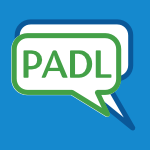 PADL-2007-LiuP #induction #logic programming
PADL-2007-LiuP #induction #logic programming- Inductive Logic Programming by Instance Patterns (CL, EP), pp. 230–244.
 POPL-2007-StovringL #induction
POPL-2007-StovringL #induction- A complete, co-inductive syntactic theory of sequential control and state (KS, SBL), pp. 161–172.
 SAC-2007-VarroB #automation #induction #logic programming #model transformation #using
SAC-2007-VarroB #automation #induction #logic programming #model transformation #using- Automating model transformation by example using inductive logic programming (DV, ZB), pp. 978–984.
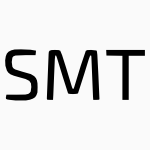 SMT-J-2006-BarrettST07 #data type #formal method #induction
SMT-J-2006-BarrettST07 #data type #formal method #induction- An Abstract Decision Procedure for a Theory of Inductive Data Types (CB, IS, CT), pp. 21–46.
 CADE-2007-UrbanBN
CADE-2007-UrbanBN- Barendregt’s Variable Convention in Rule Inductions (CU, SB, MN), pp. 35–50.
 CSL-2007-BlanquiJS #calculus #induction
CSL-2007-BlanquiJS #calculus #induction- Building Decision Procedures in the Calculus of Inductive Constructions (FB, JPJ, PYS), pp. 328–342.
 LICS-2007-BrotherstonS #calculus #induction #infinity
LICS-2007-BrotherstonS #calculus #induction #infinity- Complete Sequent Calculi for Induction and Infinite Descent (JB, AS), pp. 51–62.
 TLCA-2007-Abel #induction #normalisation
TLCA-2007-Abel #induction #normalisation- Strong Normalization and Equi-(Co)Inductive Types (AA0), pp. 8–22.
 DAC-2006-VimjamH #identification #induction #performance #satisfiability
DAC-2006-VimjamH #identification #induction #performance #satisfiability- Fast illegal state identification for improving SAT-based induction (VCV, MSH), pp. 241–246.
 DATE-2006-LaMeresK #encoding #induction
DATE-2006-LaMeresK #encoding #induction- Bus stuttering: an encoding technique to reduce inductive noise in off-chip data transmission (BJL, SPK), pp. 522–527.
 IFL-2006-Almendros-JimenezV #automation
IFL-2006-Almendros-JimenezV #automation- Automatic Partial Inversion of Inductively Sequential Functions (JMAJ, GV), pp. 253–270.
 SIGIR-2006-Forman #concept #induction
SIGIR-2006-Forman #concept #induction- Tackling concept drift by temporal inductive transfer (GF), pp. 252–259.
 SAC-2006-HorvathHW #effectiveness #graph #induction
SAC-2006-HorvathHW #effectiveness #graph #induction- Effective rule induction from labeled graphs (TH, SH, SW), pp. 611–616.
 SAC-2006-NikovskiK #induction #personalisation #recommendation
SAC-2006-NikovskiK #induction #personalisation #recommendation- Induction of compact decision trees for personalized recommendation (DN, VK), pp. 575–581.
 RTA-2006-Aoto #equation #induction
RTA-2006-Aoto #equation #induction- Dealing with Non-orientable Equations in Rewriting Induction (TA), pp. 242–256.
 DATE-2005-BhaduriV #higher-order #induction #metric
DATE-2005-BhaduriV #higher-order #induction #metric- Inductive and Capacitive Coupling Aware Routing Methodology Driven by a Higher Order RLCK Moment Metric (AB, RV), pp. 922–923.
 DATE-2005-LaMeresK #encoding #induction
DATE-2005-LaMeresK #encoding #induction- Encoding-Based Minimization of Inductive Cross-Talk for Off-Chip Data Transmission (BJL, SPK), pp. 1318–1323.
 SEFM-2005-OlssonW #correctness #imperative #induction #proving #source code
SEFM-2005-OlssonW #correctness #imperative #induction #proving #source code- Customised Induction Rules for Proving Correctness of Imperative Programs (OO, AW), pp. 180–189.
 ICFP-2005-RamosSV #partial evaluation #performance #source code
ICFP-2005-RamosSV #partial evaluation #performance #source code- Fast narrowing-driven partial evaluation for inductively sequential programs (JGR, JS, GV), pp. 228–239.
 ICML-2005-BridewellALT #induction #process
ICML-2005-BridewellALT #induction #process- Reducing overfitting in process model induction (WB, NBA, PL, LT), pp. 81–88.
 ICML-2005-ZhuL #graph #induction #learning #modelling #scalability
ICML-2005-ZhuL #graph #induction #learning #modelling #scalability- Harmonic mixtures: combining mixture models and graph-based methods for inductive and scalable semi-supervised learning (XZ, JDL), pp. 1052–1059.
 SIGIR-2005-UdaniDDS #induction #using #web
SIGIR-2005-UdaniDDS #induction #using #web- Noun sense induction using web search results (GU, SD, AD, TS), pp. 657–658.
 SAC-2005-FalcoTCP #approach #induction #programming #search-based
SAC-2005-FalcoTCP #approach #induction #programming #search-based- Inductive inference of chaotic series by Genetic Programming: a Solomonoff-based approach (IDF, ET, ADC, AP), pp. 957–958.
 CAV-2005-Kaivola #component #induction #invariant #simulation #verification
CAV-2005-Kaivola #component #induction #invariant #simulation #verification- Formal Verification of Pentium® 4 Components with Symbolic Simulation and Inductive Invariants (RK), pp. 170–184.
 CAV-2005-LoginovRS #abstraction #induction #learning #refinement
CAV-2005-LoginovRS #abstraction #induction #learning #refinement- Abstraction Refinement via Inductive Learning (AL, TWR, SS), pp. 519–533.
 CSL-2005-BarrasG #calculus #induction #on the
CSL-2005-BarrasG #calculus #induction #on the- On the Role of Type Decorations in the Calculus of Inductive Constructions (BB, BG), pp. 151–166.
 ICLP-2005-PelovT #induction #satisfiability
ICLP-2005-PelovT #induction #satisfiability- Reducing Inductive Definitions to Propositional Satisfiability (NP, ET), pp. 221–234.
 TLCA-2005-Bertot #induction
TLCA-2005-Bertot #induction- Filters on CoInductive Streams, an Application to Eratosthenes’ Sieve (YB), pp. 102–115.
 DAC-2004-GuptaP #evaluation #named
DAC-2004-GuptaP #evaluation #named- CHIME: coupled hierarchical inductance model evaluation (SG, LTP), pp. 800–805.
 DAC-2004-TanjiA #analysis #distributed
DAC-2004-TanjiA #analysis #distributed- Closed-form expressions of distributed RLC interconnects for analysis of on-chip inductance effects (YT, HA), pp. 810–813.
 DATE-DF-2004-BantasKL #design #modelling
DATE-DF-2004-BantasKL #design #modelling- An Inductance Modeling Flow Seamlessly Integrated in the RF IC Design Chain (SB, YK, AL), pp. 39–45.
 ICALP-2004-AbbottAG #induction #representation #using
ICALP-2004-AbbottAG #induction #representation #using- Representing Nested Inductive Types Using W-Types (MA, TA, NG), pp. 59–71.
 ICML-2004-EsmeirM #algorithm #induction
ICML-2004-EsmeirM #algorithm #induction- Lookahead-based algorithms for anytime induction of decision trees (SE, SM).
 ICML-2004-JinL #induction #robust
ICML-2004-JinL #induction #robust- Robust feature induction for support vector machines (RJ, HL).
 KR-2004-DeneckerT #calculus #induction
KR-2004-DeneckerT #calculus #induction- Inductive Situation Calculus (MD, ET), pp. 545–553.
 KR-2004-Kern-IsbernerF #induction #information management #representation
KR-2004-Kern-IsbernerF #induction #information management #representation- Knowledge Discovery by Reversing Inductive Knowledge Representation (GKI, JF), pp. 34–44.
 KR-2004-RaedtR #induction #logic programming
KR-2004-RaedtR #induction #logic programming- Condensed Representations for Inductive Logic Programming (LDR, JR), pp. 438–446.
 SAC-2004-MassonRB #database #induction #optimisation #query #set #towards
SAC-2004-MassonRB #database #induction #optimisation #query #set #towards- Optimizing subset queries: a step towards SQL-based inductive databases for itemsets (CM, CR, JFB), pp. 535–539.
 ICSE-2004-HaRCRD #case study #composition #experience #induction #proving #realtime
ICSE-2004-HaRCRD #case study #composition #experience #induction #proving #realtime- Feature-Based Decomposition of Inductive Proofs Applied to Real-Time Avionics Software: An Experience Report (VH, MR, DDC, HR, BD), pp. 304–313.
 CSL-2004-Cordon-FrancoFM #induction #recursion
CSL-2004-Cordon-FrancoFM #induction #recursion- Provably Total Primitive Recursive Functions: Theories with Induction (ACF, AFM, FFLM), pp. 355–369.
 IJCAR-2004-SteelBM #induction #protocol
IJCAR-2004-SteelBM #induction #protocol- Attacking a Protocol for Group Key Agreement by Refuting Incorrect Inductive Conjectures (GS, AB, MM), pp. 137–151.
 LICS-2004-Berger #induction
LICS-2004-Berger #induction- A Computational Interpretation of Open Induction (UB), p. 326.
 RTA-2004-AotoYT #higher-order #induction #theorem
RTA-2004-AotoYT #higher-order #induction #theorem- Inductive Theorems for Higher-Order Rewriting (TA, TY, YT), pp. 269–284.
 DATE-2003-WedlerSK #encoding #induction #using
DATE-2003-WedlerSK #encoding #induction #using- Using RTL Statespace Information and State Encoding for Induction Based Property Checking (MW, DS, WK), pp. 11156–11157.
 FoSSaCS-2003-SprengerD #calculus #induction #on the #proving #reasoning #μ-calculus
FoSSaCS-2003-SprengerD #calculus #induction #on the #proving #reasoning #μ-calculus- On the Structure of Inductive Reasoning: Circular and Tree-Shaped Proofs in the μ-Calculus (CS, MD), pp. 425–440.
 ICEIS-v2-2003-MorenoJCR #fuzzy #induction
ICEIS-v2-2003-MorenoJCR #fuzzy #induction- Induction of Temporal Fuzzy Chains (JMG, LJ, JJCS, LRB), pp. 308–315.
 ICML-2003-LangleyGBS #induction #modelling #process #robust
ICML-2003-LangleyGBS #induction #modelling #process #robust- Robust Induction of Process Models from Time-Series Data (PL, DG, SDB, KS), pp. 432–439.
 ICML-2003-YamadaSYT #data-driven #database #induction #standard
ICML-2003-YamadaSYT #data-driven #database #induction #standard- Decision-tree Induction from Time-series Data Based on a Standard-example Split Test (YY, ES, HY, KT), pp. 840–847.
 SEKE-2003-ChenJ #fuzzy #induction #information management #learning #multi #named
SEKE-2003-ChenJ #fuzzy #induction #information management #learning #multi #named- MFILM: a multi-dimensional fuzzy inductive learning method for knowledge acquisition (YTC, BJ), pp. 445–449.
 LOPSTR-2003-AlexandreBD #induction #proving #synthesis
LOPSTR-2003-AlexandreBD #induction #proving #synthesis- Predicate Synthesis from Inductive Proof Attempt of Faulty Conjectures (FA, KB, MD), pp. 20–33.
 LOPSTR-2003-LehmannL #generative #induction #proving #theorem proving #using
LOPSTR-2003-LehmannL #generative #induction #proving #theorem proving #using- Inductive Theorem Proving by Program Specialisation: Generating Proofs for Isabelle Using Ecce (HL, ML), pp. 1–19.
 CADE-2003-AvenhausKSW #exclamation #how #induction #theorem
CADE-2003-AvenhausKSW #exclamation #how #induction #theorem- How to Prove Inductive Theorems? QUODLIBET! (JA, UK, TSS, CPW), pp. 328–333.
 CADE-2003-DeplagneKKN #equation #induction #proving #theorem
CADE-2003-DeplagneKKN #equation #induction #proving #theorem- Proof Search and Proof Check for Equational and Inductive Theorems (ED, CK, HK, QHN), pp. 297–316.
 CADE-2003-GieslK #equation #induction
CADE-2003-GieslK #equation #induction- Deciding Inductive Validity of Equations (JG, DK), pp. 17–31.
 CAV-2003-MouraRS #bound #induction #model checking #verification
CAV-2003-MouraRS #bound #induction #model checking #verification- Bounded Model Checking and Induction: From Refutation to Verification (Extended Abstract, Category A) (LMdM, HR, MS), pp. 14–26.
 LICS-2003-GradelK #fixpoint
LICS-2003-GradelK #fixpoint- Will Deflation Lead to Depletion? On Non-Monotone Fixed Point Inductions (EG, SK), p. 158–?.
 RTA-2003-BartheS #framework #induction #validation
RTA-2003-BartheS #framework #induction #validation- Validation of the JavaCard Platform with Implicit Induction Techniques (GB, SS), pp. 337–351.
 RTA-2003-UrsoK #induction
RTA-2003-UrsoK #induction- “Term Partition” for Mathematical Induction (PU, EK), pp. 352–366.
 TLCA-2003-Blanqui #algebra #calculus #induction
TLCA-2003-Blanqui #algebra #calculus #induction- Inductive Types in the Calculus of Algebraic Constructions (FB), pp. 46–59.
 DAC-2002-LinBP #2d #modelling #on the
DAC-2002-LinBP #2d #modelling #on the- On the efficacy of simplified 2D on-chip inductance models (TL, MWB, LTP), pp. 757–762.
 DAC-2002-MahawarSS #performance
DAC-2002-MahawarSS #performance- A solenoidal basis method for efficient inductance extraction (HM, VS, WS), pp. 751–756.
 DAC-2002-MassoudW #approach
DAC-2002-MassoudW #approach- Improving the generality of the fictitious magnetic charge approach to computing inductances in the presence of permeable materials (YM, JW), pp. 552–555.
 DATE-2002-LinBP #3d #modelling #question
DATE-2002-LinBP #3d #modelling #question- On-Chip Inductance Models: 3D or Not 3D? (TL, MWB, LTP), p. 1112.
 PEPM-2002-BartheU #continuation #induction
PEPM-2002-BartheU #continuation #induction- CPS translating inductive and coinductive types (GB, TU), pp. 131–142.
 CIKM-2002-LiuYC #bias #classification #induction
CIKM-2002-LiuYC #bias #classification #induction- Boosting to correct inductive bias in text classification (YL, YY, JGC), pp. 348–355.
 ICML-2002-AlphonseM #induction #logic programming #set
ICML-2002-AlphonseM #induction #logic programming #set- Feature Subset Selection and Inductive Logic Programming (ÉA, SM), pp. 11–18.
 ICML-2002-GambergerL #case study #induction
ICML-2002-GambergerL #case study #induction- Descriptive Induction through Subgroup Discovery: A Case Study in a Medical Domain (DG, NL), pp. 163–170.
 ICML-2002-TakechiS #induction
ICML-2002-TakechiS #induction- Finding an Optimal Gain-Ratio Subset-Split Test for a Set-Valued Attribute in Decision Tree Induction (FT, ES), pp. 618–625.
 KR-2002-Gardenfors #concept #higher-order #induction #similarity
KR-2002-Gardenfors #concept #higher-order #induction #similarity- The Role of Higher Order Similarity in Induction and Concept Formation (PG), p. 629.
 PPDP-2002-FissoreGK #induction #proving #termination
PPDP-2002-FissoreGK #induction #proving #termination- System Presentation — CARIBOO: An induction based proof tool for termination with strategies (OF, IG, HK), pp. 62–73.
 SAC-2002-Pillay #algorithm #induction #programming #search-based #using
SAC-2002-Pillay #algorithm #induction #programming #search-based #using- Using genetic programming for the induction of novice procedural programming solution algorithms (NP), pp. 578–583.
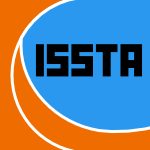 ISSTA-2002-Cheng #design #induction #modelling #refactoring #verification
ISSTA-2002-Cheng #design #induction #modelling #refactoring #verification- Refactoring design models for inductive verification (YPC), pp. 164–168.
 DAC-2001-BanerjeeM #analysis #distributed #novel #optimisation #performance #using
DAC-2001-BanerjeeM #analysis #distributed #novel #optimisation #performance #using- Analysis of On-Chip Inductance Effects using a Novel Performance Optimization Methodology for Distributed RLC Interconnects (KB, AM), pp. 798–803.
 DAC-2001-BeattieP #modelling
DAC-2001-BeattieP #modelling- Inductance 101: Modeling and Extraction (MWB, LTP), pp. 323–328.
 DAC-2001-GalaBWZZ #analysis #design
DAC-2001-GalaBWZZ #analysis #design- Inductance 101: Analysis and Design Issues (KG, DB, JW, VZ, MZ), pp. 329–334.
 DAC-2001-LuCYP #metric #modelling
DAC-2001-LuCYP #metric #modelling- Min/max On-Chip Inductance Models and Delay Metrics (YCL, MC, TY, LTP), pp. 341–346.
 DAC-2001-MassoudKMW #analysis #difference #induction #modelling
DAC-2001-MassoudKMW #analysis #difference #induction #modelling- Modeling and Analysis of Differential Signaling for Minimizing Inductive Cross-Talk (YM, JK, DM, JW), pp. 804–809.
 DATE-2001-BeattieP #performance
DATE-2001-BeattieP #performance- Efficient inductance extraction via windowing (MWB, LTP), pp. 430–436.
 DATE-2001-Chen #grid #on the #power management
DATE-2001-Chen #grid #on the #power management- On the impact of on-chip inductance on signal nets under the influence of power grid noise (TC), pp. 451–459.
 ICDAR-2001-Amin #induction #logic programming #recognition
ICDAR-2001-Amin #induction #logic programming #recognition- Recognition of Hand-Printed Characters Based on Structural Description and Inductive Logic Programming (AA), pp. 333–337.
 FoSSaCS-2001-RocklHB #formal method #higher-order #induction #syntax #π-calculus
FoSSaCS-2001-RocklHB #formal method #higher-order #induction #syntax #π-calculus- Higher-Order Abstract Syntax with Induction in Isabelle/HOL: Formalizing the π-Calculus and Mechanizing the Theory of Contexts (CR, DH, SB), pp. 364–378.
 CIKM-2001-JeongH #induction #xml
CIKM-2001-JeongH #induction #xml- Induction of Integrated View for XML Data with Heterogeneous DTDs (EJ, CNH), pp. 151–158.
 KDD-2001-LinP #induction #natural language #semantics
KDD-2001-LinP #induction #natural language #semantics- Induction of semantic classes from natural language text (DL, PP), pp. 317–322.
 MLDM-2001-MalerbaELL #first-order #induction #recognition
MLDM-2001-MalerbaELL #first-order #induction #recognition- First-Order Rule Induction for the Recognition of Morphological Patterns in Topographic Maps (DM, FE, AL, FAL), pp. 88–101.
 CC-2001-StoutchininAGDJD #induction #pointer
CC-2001-StoutchininAGDJD #induction #pointer- Speculative Prefetching of Induction Pointers (AS, JNA, GRG, JCD, SJ, AD), pp. 289–303.
 CAV-2001-AronsPRXZ #automation #induction #verification
CAV-2001-AronsPRXZ #automation #induction #verification- Parameterized Verification with Automatically Computed Inductive Assertions (TA, AP, SR, JX, LDZ), pp. 221–234.
 CAV-2001-RoychoudhuryR #automation #induction #protocol #verification
CAV-2001-RoychoudhuryR #automation #induction #protocol #verification- Automated Inductive Verification of Parameterized Protocols (AR, IVR), pp. 25–37.
 CSL-2001-Martin #induction
CSL-2001-Martin #induction- A Principle of Induction (KM), pp. 458–468.
 CSL-2001-Matthes #induction #rank
CSL-2001-Matthes #induction #rank- Monotone Inductive and Coinductive Constructors of Rank 2 (RM), pp. 600–614.
 IJCAR-2001-GieslK #decidability #induction #theorem
IJCAR-2001-GieslK #decidability #induction #theorem- Decidable Classes of Inductive Theorems (JG, DK), pp. 469–484.
 TLCA-2001-Geuvers #dependent type #higher-order #induction #type system
TLCA-2001-Geuvers #dependent type #higher-order #induction #type system- Induction Is Not Derivable in Second Order Dependent Type Theory (HG), pp. 166–181.
 TLCA-2001-Matthes #higher-order #induction #λ-calculus #μ-calculus
TLCA-2001-Matthes #higher-order #induction #λ-calculus #μ-calculus- Parigot’s Second Order λμ-Calculus and Inductive Types (RM), pp. 329–343.
 DAC-2000-GalaZPYWB #analysis #modelling
DAC-2000-GalaZPYWB #analysis #modelling- On-chip inductance modeling and analysis (KG, VZ, RP, BY, JW, DB), pp. 63–68.
 DAC-2000-KashyapK
DAC-2000-KashyapK- A realizable driving point model for on-chip interconnect with inductance (CVK, BK), pp. 190–195.
 DATE-2000-ChangLNXH #modelling #performance
DATE-2000-ChangLNXH #modelling #performance- Clocktree RLC Extraction with Efficient Inductance Modeling (NC, SL, OSN, WX, LH), pp. 522–526.
 FoSSaCS-2000-BartheR #calculus #induction #type system
FoSSaCS-2000-BartheR #calculus #induction #type system- Constructor Subtyping in the Calculus of Inductive Constructions (GB, FvR), pp. 17–34.
 ICML-2000-WeissI #induction #lightweight
ICML-2000-WeissI #induction #lightweight- Lightweight Rule Induction (SMW, NI), pp. 1135–1142.
 ICML-2000-ZupanBBD #concept #induction #semistructured data
ICML-2000-ZupanBBD #concept #induction #semistructured data- Induction of Concept Hierarchies from Noisy Data (BZ, IB, MB, JD), pp. 1199–1206.
 CADE-2000-KapurS #induction
CADE-2000-KapurS #induction- Extending Decision Procedures with Induction Schemes (DK, MS), pp. 324–345.
 CAV-2000-AyariBK #automaton #induction
CAV-2000-AyariBK #automaton #induction- Decision Procedures for Inductive Boolean Functions Based on Alternating Automata (AA, DAB, FK), pp. 170–185.
 CAV-2000-McMillanQS #composition #induction #model checking
CAV-2000-McMillanQS #composition #induction #model checking- Induction in Compositional Model Checking (KLM, SQ, JBS), pp. 312–327.
 CL-2000-BoultonS #automation #induction #recursion
CL-2000-BoultonS #automation #induction #recursion- Automatic Derivation and Application of Induction Schemes for Mutually Recursive Functions (RJB, KS), pp. 629–643.
 CL-2000-Denecker #induction #logic
CL-2000-Denecker #induction #logic- Extending Classical Logic with Inductive Definitions (MD), pp. 703–717.
 CSL-2000-Jaume #induction #logic programming
CSL-2000-Jaume #induction #logic programming- Logic Programming and Co-inductive Definitions (MJ), pp. 343–355.
 DAC-1999-BeattieP #analysis #modelling
DAC-1999-BeattieP #analysis #modelling- IC Analyses Including Extracted Inductance Models (MWB, LTP), pp. 915–920.
 DAC-1999-IsmailF
DAC-1999-IsmailF- Effects of Inductance on the Propagation Delay and Repeater Insertion in VLSI Circuits (YII, EGF), pp. 721–724.
 DAC-1999-Morton #multi
DAC-1999-Morton #multi- On-Chip Inductance Issues in Multiconductor Systems (SVM), pp. 921–926.
 DAC-1999-RestleRW #design #performance
DAC-1999-RestleRW #design #performance- Dealing with Inductance in High-Speed Chip Design (PR, AER, SGW), pp. 904–909.
 ICDAR-1999-AminS #recognition
ICDAR-1999-AminS #recognition- Recognition of Hand-Printed Characters via Induct-RDR (AA, SS), pp. 221–224.
 DLT-1999-LopezN #induction
DLT-1999-LopezN #induction- Substitutions from Rauzy induction (extended abstract) (LML, PN), pp. 200–209.
 ICALP-1999-Miculan #calculus #formal method #induction #lazy evaluation #proving #μ-calculus
ICALP-1999-Miculan #calculus #formal method #induction #lazy evaluation #proving #μ-calculus- Formalizing a Lazy Substitution Proof System for μ-calculus in the Calculus of Inductive Constructions (MM), pp. 554–564.
 ICFP-1999-AlpuenteHLV #functional #logic programming #source code
ICFP-1999-AlpuenteHLV #functional #logic programming #source code- Specialization of Inductively Sequential Functional Logic Programs (MA, MH, SL, GV), pp. 273–283.
 HCI-EI-1999-MahanMEHD #induction
HCI-EI-1999-MahanMEHD #induction- Countermeasures Against Stress: Dynamic Cognitive Induction (RPM, CJM, LRE, EH, PTD), pp. 691–695.
 ICML-1999-BrodieD #induction #learning #using
ICML-1999-BrodieD #induction #learning #using- Learning to Ride a Bicycle using Iterated Phantom Induction (MB, GD), pp. 57–66.
 ICML-1999-PalhangS #induction #learning #logic programming
ICML-1999-PalhangS #induction #learning #logic programming- Learning Discriminatory and Descriptive Rules by an Inductive Logic Programming System (MP, AS), pp. 288–297.
 ICML-1999-Pompe #induction #recursion
ICML-1999-Pompe #induction #recursion- Noise-Tolerant Recursive Best-First Induction (UP), pp. 315–324.
 ICML-1999-WuBCS #induction #scalability
ICML-1999-WuBCS #induction #scalability- Large Margin Trees for Induction and Transduction (DW, KPB, NC, JST), pp. 474–483.
 KDD-1999-Cerquides #induction
KDD-1999-Cerquides #induction- Applying General Bayesian Techniques to Improve TAN Induction (JC), pp. 292–296.
 SAC-1999-Taylor #finite #induction #pattern matching #using
SAC-1999-Taylor #finite #induction #pattern matching #using- Exon/Intron Discrimination Using the Finite Induction Pattern Matching Technique (PAT), pp. 41–45.
 CADE-1999-HutterB #contest #design #induction #proving #theorem proving
CADE-1999-HutterB #contest #design #induction #proving #theorem proving- The Design of the CADE-16 Inductive Theorem Prover Contest (DH, AB), pp. 374–377.
 CAV-1999-MannaS #diagrams #induction #verification
CAV-1999-MannaS #diagrams #induction #verification- Verification of Parameterized Systems by Dynamic Induction on Diagrams (ZM, HS), pp. 25–41.
 CSL-1999-AltenkirchR #induction #monad #using
CSL-1999-AltenkirchR #induction #monad #using- Monadic Presentations of λ Terms Using Generalized Inductive Types (TA, BR), pp. 453–468.
 ICLP-1999-ProiettiP #induction
ICLP-1999-ProiettiP #induction- Transforming Inductive Definitions (MP, AP), pp. 486–499.
 TLCA-1999-DybjerS #axiom #finite #recursion
TLCA-1999-DybjerS #axiom #finite #recursion- A Finite Axiomatization of Inductive-Recursive Definitions (PD, AS), pp. 129–146.
 DAC-1998-IsmailFN
DAC-1998-IsmailFN- Figures of Merit to Characterize the Importance of On-Chip Inductance (YII, EGF, JLN), pp. 560–565.
 DAC-1998-KrauterM #analysis #layout
DAC-1998-KrauterM #analysis #layout- Layout Based Frequency Dependent Inductance and Resistance Extraction for On-Chip Interconnect Timing Analysis (BK, SM), pp. 303–308.
 DAC-1998-MassoudMBW #layout
DAC-1998-MassoudMBW #layout- Layout Techniques for Minimizing On-Chip Interconnect Self Inductance (YM, SSM, TB, JW), pp. 566–571.
 ITiCSE-1998-RosenSB #induction #student
ITiCSE-1998-RosenSB #induction #student- An augmented induction for HND computer studies students through an early integrated, inter-disciplinary assignment (CR, DS, JIB), pp. 219–222.
 WRLA-1998-Jouannaud #calculus #equation #induction #logic
WRLA-1998-Jouannaud #calculus #equation #induction #logic- Membership equational logic, calculus of inductive instructions, and rewrite logic (JPJ), pp. 388–393.
 FLOPS-1998-Tsukada #equation #reasoning
FLOPS-1998-Tsukada #equation #reasoning- Type-free Equational Reasoning in the Theeory of Inductively Defined Types (YT), pp. 227–246.
 ICALP-1998-Lugiez #automaton #induction #proving #theorem proving
ICALP-1998-Lugiez #automaton #induction #proving #theorem proving- A Good Class of Tree Automata and Application to Inductive Theorem Proving (DL), pp. 409–420.
 CIKM-1998-DumaisPHS #algorithm #categorisation #induction #learning
CIKM-1998-DumaisPHS #algorithm #categorisation #induction #learning- Inductive Learning Algorithms and Representations for Text Categorization (STD, JCP, DH, MS), pp. 148–155.
 ICML-1998-AlerBI #approach #learning #multi #programming #search-based
ICML-1998-AlerBI #approach #learning #multi #programming #search-based- Genetic Programming and Deductive-Inductive Learning: A Multi-Strategy Approach (RA, DB, PI), pp. 10–18.
 ICML-1998-BlockeelRR #clustering #induction #top-down
ICML-1998-BlockeelRR #clustering #induction #top-down- Top-Down Induction of Clustering Trees (HB, LDR, JR), pp. 55–63.
 ICML-1998-ProvostFK #algorithm #estimation #induction
ICML-1998-ProvostFK #algorithm #estimation #induction- The Case against Accuracy Estimation for Comparing Induction Algorithms (FJP, TF, RK), pp. 445–453.
 ICPR-1998-SanchezPF #approach #induction
ICPR-1998-SanchezPF #approach #induction- A Voronoi-diagram-based approach to oblique decision tree induction (JSS, FP, FJF), pp. 542–544.
 LOPSTR-1998-HamfeltN #combinator #composition #induction #logic programming #source code #synthesis
LOPSTR-1998-HamfeltN #combinator #composition #induction #logic programming #source code #synthesis- Inductive Synthesis of Logic Programs by Composition of Combinatory Program Schemes (AH, JFN), pp. 143–158.
 CADE-1998-BrauburgerG #analysis #evaluation #induction #termination
CADE-1998-BrauburgerG #analysis #evaluation #induction #termination- Termination Analysis by Inductive Evaluation (JB, JG), pp. 254–269.
 CADE-1998-Crary #fixpoint #induction
CADE-1998-Crary #fixpoint #induction- Admissibility of Fixpoint Induction over Partial Types (KC), pp. 270–285.
 CAV-1998-BellaP #induction
CAV-1998-BellaP #induction- Mechanising BAN Kerberos by the Inductive Method (GB, LCP), pp. 416–427.
 CSL-1998-Altenkirch #induction #logic
CSL-1998-Altenkirch #induction #logic- Logical Relations and Inductive/Coinductive Types (TA), pp. 343–354.
 JICSLP-1998-Lavrac #induction #information management #logic programming #relational
JICSLP-1998-Lavrac #induction #information management #logic programming #relational- Inductive Logic Programming for Relational Knowledge Discovery (NL), pp. 7–24.
 DAC-1997-HeCP #named
DAC-1997-HeCP #named- SPIE: Sparse Partial Inductance Extraction (ZH, MC, LTP), pp. 137–140.
 EDTC-1997-KunduG #analysis
EDTC-1997-KunduG #analysis- Inductance analysis of on-chip interconnects [deep submicron CMOS] (SK, UG), pp. 252–255.
 ICFP-1997-Ostvold #functional #induction #recursion #source code #synthesis
ICFP-1997-Ostvold #functional #induction #recursion #source code #synthesis- Inductive Synthesis of Recursive Functional Programs (Poster Abstract) (BMØ), p. 323.
 HCI-SEC-1997-Yoshida #graph #induction #modelling
HCI-SEC-1997-Yoshida #graph #induction #modelling- User Modeling by Graph-Based Induction (KY), pp. 23–26.
 ICML-1997-CohenD #case study #comparative #fault #induction #logic programming #predict
ICML-1997-CohenD #case study #comparative #fault #induction #logic programming #predict- A Comparative Study of Inductive Logic Programming Methods for Software Fault Prediction (WWC, PTD), pp. 66–74.
 ICML-1997-Decatur #classification #induction #learning
ICML-1997-Decatur #classification #induction #learning- PAC Learning with Constant-Partition Classification Noise and Applications to Decision Tree Induction (SED), pp. 83–91.
 ICML-1997-VilaltaR #classification #induction #multi
ICML-1997-VilaltaR #classification #induction #multi- Integrating Feature Construction with Multiple Classifiers in Decision Tree Induction (RV, LAR), pp. 394–402.
 KDD-1997-ProvostK #algorithm #bibliography #induction #perspective #scalability
KDD-1997-ProvostK #algorithm #bibliography #induction #perspective #scalability- Scaling Up Inductive Algorithms: An Overview (FJP, VK), pp. 239–242.
 LOPSTR-1997-SemeraroEMFF #datalog #framework #incremental #induction #logic #synthesis
LOPSTR-1997-SemeraroEMFF #datalog #framework #incremental #induction #logic #synthesis- A Logic Framework for the Incremental Inductive Synthesis of Datalog Theories (GS, FE, DM, NF, SF), pp. 300–321.
 CADE-1997-Matthews #implementation #induction #using
CADE-1997-Matthews #implementation #induction #using- A Practical Implementation of Simple Consequence Relations Using Inductive Definitions (SM), pp. 306–320.
 ILPS-1997-Mannila #data mining #database #induction #mining
ILPS-1997-Mannila #data mining #database #induction #mining- Inductive Databases and Condensed Representations for Data Mining (HM), pp. 21–30.
 LICS-1997-BouhoulaJ #automation #induction
LICS-1997-BouhoulaJ #automation #induction- Automata-Driven Automated Induction (AB, JPJ), pp. 14–25.
 LICS-1997-EscardoS #algebra #induction #recursion
LICS-1997-EscardoS #algebra #induction #recursion- Induction and Recursion on the Partial Real Line via Biquotients of Bifree Algebras (MHE, TS), pp. 376–386.
 LICS-1997-Rathke #fixpoint #induction #process
LICS-1997-Rathke #fixpoint #induction #process- Unique Fixpoint Induction for Value-Passing Processes (Extended Abstract) (JR), pp. 140–148.
 RTA-1997-KuhlerW #data type #equation #induction #proving #specification #theorem proving
RTA-1997-KuhlerW #data type #equation #induction #proving #specification #theorem proving- Conditional Equational Specifications of Data Types with Partial Operations for Inductive Theorem Proving (UK, CPW), pp. 38–52.
 ICFP-1996-Howard #induction
ICFP-1996-Howard #induction- Inductive, Coinductive, and Pointed Types (BTH), pp. 102–109.
 AKDDM-1996-Dzeroski #database #induction #information management #logic programming
AKDDM-1996-Dzeroski #database #induction #information management #logic programming- Inductive Logic Programming and Knowledge Discovery in Databases (SD), pp. 117–152.
 AKDDM-1996-HanF #data mining #induction #mining
AKDDM-1996-HanF #data mining #induction #mining- Attribute-Oriented Induction in data Mining (JH, YF), pp. 399–421.
 AKDDM-1996-HsuK #induction #learning #optimisation #query #semantics #using
AKDDM-1996-HsuK #induction #learning #optimisation #query #semantics #using- Using Inductive Learning To Generate Rules for Semantic Query Optimization (CNH, CAK), pp. 425–445.
 AKDDM-1996-SimoudisLK #data mining #deduction #induction #mining #reasoning
AKDDM-1996-SimoudisLK #data mining #deduction #induction #mining #reasoning- Integrating Inductive and Deductive Reasoning for Data Mining (ES, BL, RK), pp. 353–373.
 ICML-1996-Bostrom #induction #logic programming #regular expression #source code
ICML-1996-Bostrom #induction #logic programming #regular expression #source code- Theory-Guideed Induction of Logic Programs by Inference of Regular Languages (HB), pp. 46–53.
 ICML-1996-DonohoR #induction #using
ICML-1996-DonohoR #induction #using- Constructive Induction Using Fragmentary Knowledge (SKD, LAR), pp. 113–121.
 KDD-1996-Domingos #induction #linear
KDD-1996-Domingos #induction #linear- Linear-Time Rule Induction (PMD), pp. 96–101.
 KDD-1996-Domingos96a #induction #performance
KDD-1996-Domingos96a #induction #performance- Efficient Specific-to-General Rule Induction (PMD), pp. 319–322.
 KDD-1996-FultonKSW #data mining #induction #interactive #mining #towards
KDD-1996-FultonKSW #data mining #induction #interactive #mining #towards- Local Induction of Decision Trees: Towards Interactive Data Mining (TF, SK, SS, DLW), pp. 14–19.
 KDD-1996-Langley #induction
KDD-1996-Langley #induction- Induction of Condensed Determinations (PL), pp. 327–330.
 KDD-1996-TeranoI #induction #information management #interactive #learning #using
KDD-1996-TeranoI #induction #information management #interactive #learning #using- Interactive Knowledge Discovery from Marketing Questionnaire Using Simulated Breeding and Inductive Learning Methods (TT, YI), pp. 279–282.
 KDD-1996-UrpaniWS #induction #named
KDD-1996-UrpaniWS #induction #named- RITIO — Rule Induction Two In One (DU, XW, JS), pp. 339–342.
 CADE-1996-BasinM #induction
CADE-1996-BasinM #induction- Structuring Metatheory on Inductive Definitions (DAB, SM), pp. 171–185.
 CADE-1996-IrelandB #induction #proving
CADE-1996-IrelandB #induction #proving- Extensions to a Generalization Critic for Inductive Proof (AI, AB), pp. 47–61.
 CADE-1996-KapurS #automation #induction
CADE-1996-KapurS #automation #induction- Lemma Discovery in Automated Induction (DK, MS), pp. 538–552.
 CAV-1996-BerregebBR #automation #commutative #induction #verification
CAV-1996-BerregebBR #automation #commutative #induction #verification- Automated Verification by Induction with Associative-Commutative Operators (NB, AB, MR), pp. 220–231.
 CSL-1996-Setzer #decidability #induction
CSL-1996-Setzer #decidability #induction- Inductive Definitions with Decidable Atomic Formulas (AS), pp. 414–430.
 RTA-1996-BerregebBR #commutative #induction #named #proving
RTA-1996-BerregebBR #commutative #induction #named #proving- SPIKE-AC: A System for Proofs by Induction in Associative-Commutative Theories (NB, AB, MR), pp. 428–431.
 DAC-1995-SilveiraKW #3d #modelling #performance
DAC-1995-SilveiraKW #3d #modelling #performance- Efficient Reduced-Order Modeling of Frequency-Dependent Coupling Inductances Associated with 3-D Interconnect Structures (LMS, MK, JW), pp. 376–380.
 FPLE-1995-LesterM #student
FPLE-1995-LesterM #student- Inducing Students to Induct (DRL, SM), pp. 159–177.
 PEPM-1995-Deutsch #abstract interpretation #data type #induction #modelling #pointer #semantics
PEPM-1995-Deutsch #abstract interpretation #data type #induction #modelling #pointer #semantics- Semantic models and abstract interpretation techniques for inductive data structures and pointers (AD), pp. 226–229.
 ICML-1995-Benson #induction #learning #modelling
ICML-1995-Benson #induction #learning #modelling- Inductive Learning of Reactive Action Models (SB), pp. 47–54.
 ICML-1995-Cohen #effectiveness #induction #performance
ICML-1995-Cohen #effectiveness #induction #performance- Fast Effective Rule Induction (WWC), pp. 115–123.
 ICML-1995-DonohoR #induction #lessons learnt
ICML-1995-DonohoR #induction #lessons learnt- Lessons from Theory Revision Applied to Constructive Induction (SKD, LAR), pp. 185–193.
 ICML-1995-SinghP #algorithm #classification #comparison #induction
ICML-1995-SinghP #algorithm #classification #comparison #induction- A Comparison of Induction Algorithms for Selective and non-Selective Bayesian Classifiers (MS, GMP), pp. 497–505.
 ICML-1995-StreetMW #approach #induction #learning #predict
ICML-1995-StreetMW #approach #induction #learning #predict- An Inductive Learning Approach to Prognostic Prediction (WNS, OLM, WHW), pp. 522–530.
 KDD-1995-Gaines #induction
KDD-1995-Gaines #induction- Structured and Unstructured Induction with EDAGs (BRG), pp. 124–129.
 KDD-1995-HwangF #algorithm #induction #performance
KDD-1995-HwangF #algorithm #induction #performance- Efficient Algorithms for Attribute-Oriented Induction (HYH, AWCF), pp. 168–173.
 KDD-1995-MurthyS #effectiveness #heuristic #how #induction #question
KDD-1995-MurthyS #effectiveness #heuristic #how #induction #question- Decision Tree Induction: How Effective is the Greedy Heuristic? (SKM, SS), pp. 222–227.
 KDD-1995-Siebes #induction #query
KDD-1995-Siebes #induction #query- Data Surveying: Foundations of an Inductive Query Language (AS), pp. 269–274.
 KDD-1995-TsumotoT #automation #induction #multi #recursion #statistics #testing
KDD-1995-TsumotoT #automation #induction #multi #recursion #statistics #testing- Automated Selection of Rule Induction Methods Based on Recursive Iteration of Resampling Methods and Multiple Statistical Testing (ST, HT), pp. 312–317.
 KDD-1995-WuM #fuzzy #induction
KDD-1995-WuM #fuzzy #induction- Fuzzy Interpretation of Induction Results (XW, PM), pp. 325–330.
 LOPSTR-1995-ParkesW #horn clause #induction #logic programming #synthesis
LOPSTR-1995-ParkesW #horn clause #induction #logic programming #synthesis- Logic Program Synthesis by Induction over Horn Clauses (AJP, GAW), p. 170.
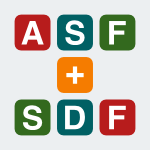 ASF+SDF-1995-NaidichD #asf+sdf #automation #induction #proving #specification
ASF+SDF-1995-NaidichD #asf+sdf #automation #induction #proving #specification- Specifying an Automated Induction Proof Procedure in ASF+SDF (DN, TBD), pp. 233–254.
 CAV-1995-CousotC #composition #constraints #equation #fixpoint #game studies #induction #rule-based #semantics
CAV-1995-CousotC #composition #constraints #equation #fixpoint #game studies #induction #rule-based #semantics- Compositional and Inductive Semantic Definitions in Fixpoint, Equational, Constraint, Closure-condition, Rule-based and Game-Theoretic Form (PC, RC), pp. 293–308.
 PEPM-1994-FegarasSZ #induction #multi #source code
PEPM-1994-FegarasSZ #induction #multi #source code- Improving Programs Which Recurse over Multiple Inductive Structures (LF, TS, TZ), pp. 21–32.
 ICML-1994-KietzL #algorithm #induction #logic programming #performance
ICML-1994-KietzL #algorithm #induction #logic programming #performance- An Efficient Subsumption Algorithm for Inductive Logic Programming (JUK, ML), pp. 130–138.
 ICML-1994-Muggleton #induction #logic programming
ICML-1994-Muggleton #induction #logic programming- Bayesian Inductive Logic Programming (SM), pp. 371–379.
 ICML-1994-Sebag #algorithm #constraints #induction
ICML-1994-Sebag #algorithm #constraints #induction- A Constraint-based Induction Algorithm in FOL (MS), pp. 275–283.
 ICML-1994-Utgoff #algorithm #incremental #induction
ICML-1994-Utgoff #algorithm #incremental #induction- An Improved Algorithm for Incremental Induction of Decision Trees (PEU), pp. 318–325.
 ICML-1994-ZelleMK #bottom-up #induction #logic programming #top-down
ICML-1994-ZelleMK #bottom-up #induction #logic programming #top-down- Combining Top-down and Bottom-up Techniques in Inductive Logic Programming (JMZ, RJM, JBK), pp. 343–351.
 KDD-1994-AronisP #induction #machine learning #relational
KDD-1994-AronisP #induction #machine learning #relational- Efficiently Constructing Relational Features from Background Knowledge for Inductive Machine Learning (JMA, FJP), pp. 347–358.
 KDD-1994-HsuK #induction #optimisation #query #semantics
KDD-1994-HsuK #induction #optimisation #query #semantics- Rule Induction for Semantic Query Optimization (CNH, CAK), pp. 311–322.
 KDD-1994-ShenMOZ #database #deduction #induction #learning #using
KDD-1994-ShenMOZ #database #deduction #induction #learning #using- Using Metagueries to Integrate Inductive Learning and Deductive Database Technology (WMS, BGM, KO, CZ), pp. 335–346.
 KDD-1994-SimoudisLK #database #deduction #induction #mining #reasoning
KDD-1994-SimoudisLK #database #deduction #induction #mining #reasoning- Integrating Inductive and Deductive Reasoning for Database Mining (ES, BL, RK), pp. 37–48.
 KDD-1994-ZuckerCTR #bias #induction #named
KDD-1994-ZuckerCTR #bias #induction #named- DICE: A Discovery Environment Integrating Inductive Bias (JDZ, VC, JT, GR), pp. 275–286.
 ALP-1994-Bouhoula #induction #proving
ALP-1994-Bouhoula #induction #proving- Sufficient Completeness and Parameterized Proofs by Induction (AB), pp. 23–40.
 LOPSTR-1994-FlenerP #induction #on the #reasoning #synthesis
LOPSTR-1994-FlenerP #induction #on the #reasoning #synthesis- On the Use of Inductive Reasoning in Program Synthesis: Prejudice and Prospects (PF, LP), pp. 69–87.
 CADE-1994-Bouhoula #induction #named #proving
CADE-1994-Bouhoula #induction #named #proving- SPIKE: a System for Sufficient Completeness and Parameterized Inductive Proofs (AB), pp. 836–840.
 CADE-1994-BronsardRH #induction #order #using
CADE-1994-BronsardRH #induction #order #using- Induction using Term Orderings (FB, USR, RWH), pp. 102–117.
 CADE-1994-ChazarainK #induction #proving
CADE-1994-ChazarainK #induction #proving- Mechanizable Inductive Proofs for a Class of Forall Exists Formulas (JC, EK), pp. 118–132.
 CADE-1994-Eriksson #calculus #editing #induction #interactive #named
CADE-1994-Eriksson #calculus #editing #induction #interactive #named- Pi: an Interactive Derivation Editor for the Calculus of Partial Inductive Definitions (LHE), pp. 821–825.
 CADE-1994-Hutter #induction #order #proving #synthesis
CADE-1994-Hutter #induction #order #proving #synthesis- Synthesis of Induction Orderings for Existence Proofs (DH), pp. 29–41.
 CADE-1994-Paulson #approach #implementation #induction
CADE-1994-Paulson #approach #implementation #induction- A Fixedpoint Approach to Implementing (Co)Inductive Definitions (LCP), pp. 148–161.
 CADE-1994-Protzen #generative #induction #lazy evaluation
CADE-1994-Protzen #generative #induction #lazy evaluation- Lazy Generation of Induction Hypotheses (MP), pp. 42–56.
 CADE-1994-WirthG #equation #induction #on the
CADE-1994-WirthG #equation #induction #on the- On Notions of Inductive Validity for First-Oder Equational Clauses (CPW, BG), pp. 162–176.
 DAC-1993-KamonTW #3d #multi #named
DAC-1993-KamonTW #3d #multi #named- FastHenry: A Multipole-Accelerated 3-D Inductance Extraction Program (MK, MJT, JW), pp. 678–683.
 ICDAR-1993-Nagaishi #identification #induction #recognition
ICDAR-1993-Nagaishi #identification #induction #recognition- Identifying ability of a recognition method based on the field of induction (MN), pp. 926–929.
 PEPM-1993-Lawall #induction #partial evaluation #proving #using
PEPM-1993-Lawall #induction #partial evaluation #proving #using- Proofs by Structural Induction using Partial Evaluation (JLL), pp. 155–166.
 ICML-1993-Caruana #bias #induction #knowledge-based #learning #multi
ICML-1993-Caruana #bias #induction #knowledge-based #learning #multi- Multitask Learning: A Knowledge-Based Source of Inductive Bias (RC), pp. 41–48.
 ICML-1993-ClarkM #induction #learning #modelling #using
ICML-1993-ClarkM #induction #learning #modelling #using- Using Qualitative Models to Guide Inductive Learning (PC, SM), pp. 49–56.
 ICML-1993-Mladenic #combinator #concept #induction #learning #optimisation
ICML-1993-Mladenic #combinator #concept #induction #learning #optimisation- Combinatorial Optimization in Inductive Concept Learning (DM), pp. 205–211.
 ICML-1993-MusickCR #database #induction #scalability
ICML-1993-MusickCR #database #induction #scalability- Decision Theoretic Subsampling for Induction on Large Databases (RM, JC, SJR), pp. 212–219.
 ICML-1993-Rymon #induction #problem
ICML-1993-Rymon #induction #problem- An SE-tree based Characterization of the Induction Problem (RR), pp. 268–275.
 SEKE-1993-MineauGM #clustering #concept #induction #modelling
SEKE-1993-MineauGM #clustering #concept #induction #modelling- Induction of Generic Data Models by Conceptual Clustering (GWM, RG, RM), pp. 554–564.
 LOPSTR-1993-BergadanoG #induction #logic programming #source code #synthesis
LOPSTR-1993-BergadanoG #induction #logic programming #source code #synthesis- Inductive Synthesis of Logic Programs and Inductive Logic Programming (FB, DG), pp. 45–56.
 LOPSTR-1993-Grobelnik #induction #prolog #source code
LOPSTR-1993-Grobelnik #induction #prolog #source code- Induction of Prolog Programs with Markus (MG), pp. 57–63.
 CAV-1993-GuptaF #induction #parametricity #representation #using
CAV-1993-GuptaF #induction #parametricity #representation #using- Parametric Circuit Representation Using Inductive Boolean Functions (AG, ALF), pp. 15–28.
 ICLP-1993-McCarty #higher-order #induction #logic #prolog #proving #source code
ICLP-1993-McCarty #higher-order #induction #logic #prolog #proving #source code- Proving Inductive Properties of Prolog Programs in Second-Order Intuitionistic Logic (LTM), pp. 44–63.
 ILPS-1993-Raedt #induction #logic programming
ILPS-1993-Raedt #induction #logic programming- A Brief Introduction to Inductive Logic Programming (LDR), pp. 45–51.
 TLCA-1993-Paulin-Mohring #coq #induction
TLCA-1993-Paulin-Mohring #coq #induction- Inductive Definitions in the system Coq — Rules and Properties (CPM), pp. 328–345.
 DAC-1992-RhoS #induction #verification
DAC-1992-RhoS #induction #verification- Inductive Verification of Iterative Systems (JKR, FS), pp. 628–633.
 PLDI-1992-Wolfe #induction
PLDI-1992-Wolfe #induction- Beyond Induction Variables (MW), pp. 162–174.
 CIKM-1992-KeenR #approximate #database #dependence #induction
CIKM-1992-KeenR #approximate #database #dependence #induction- Inductive Dependencies and Approximate Databases (DK, AR), pp. 98–114.
 ML-1992-BalaMW #induction
ML-1992-BalaMW #induction- The Principal Axes Method for Constructive Induction (JWB, RSM, JW), pp. 20–29.
 ML-1992-Carpineto #consistency #induction #performance
ML-1992-Carpineto #consistency #induction #performance- Trading Off Consistency and Efficiency in version-Space Induction (CC), pp. 43–48.
 ML-1992-FengM #higher-order #induction #logic #towards
ML-1992-FengM #higher-order #induction #logic #towards- Towards Inductive Generalization in Higher Order Logic (CF, SM), pp. 154–162.
 ML-1992-IbaL #induction
ML-1992-IbaL #induction- Induction of One-Level Decision Trees (WI, PL), pp. 233–240.
 ML-1992-Janikow #contest #induction #learning
ML-1992-Janikow #contest #induction #learning- Combining Competition and Cooperation in Supervised Inductive Learning (CZJ), pp. 241–248.
 ML-1992-LapointeM #induction #named #performance #recursion #source code
ML-1992-LapointeM #induction #named #performance #recursion #source code- Sub-unification: A Tool for Efficient Induction of Recursive Programs (SL, SM), pp. 273–281.
 ML-1992-OliveiraS #feature model #induction #using
ML-1992-OliveiraS #feature model #induction #using- Constructive Induction Using a Non-Greedy Strategy for Feature Selection (ALO, ALSV), pp. 355–360.
 SEKE-1992-ReynoldsMZ #induction #using
SEKE-1992-ReynoldsMZ #induction #using- Extracting Procedural Knowledge from Software Systems Using Inductive Leaning in the PM system (RGR, JIM, EZ), pp. 131–139.
 LOPSTR-1992-FribourgO #induction #logic programming #source code
LOPSTR-1992-FribourgO #induction #logic programming #source code- A Unifying View of Structural Induction and Computation Induction for Logic Programs (LF, HO), pp. 46–60.
 POPL-1992-CousotC #abstract interpretation #induction #semantics
POPL-1992-CousotC #abstract interpretation #induction #semantics- Inductive Definitions, Semantics and Abstract Interpretation (PC, RC), pp. 83–94.
 CADE-1992-HuaZ #induction #named
CADE-1992-HuaZ #induction #named- FRI: Failure-Resistant Induction in RRL (XH, HZ), pp. 691–695.
 CADE-1992-ZhangH #induction #proving #set #theorem
CADE-1992-ZhangH #induction #proving #set #theorem- Proving the Chinese Remainder Theorem by the Cover Set Induction (HZ, XH), pp. 431–445.
 CSL-1992-GradelO #finite #induction
CSL-1992-GradelO #finite #induction- Inductive Definability with Counting on Finite Structures (EG, MO), pp. 231–247.
 KDD-1991-CaiCH #database #induction #relational
KDD-1991-CaiCH #database #induction #relational- Attribute-Oriented Induction in Relational Databases (YC, NC, JH), pp. 213–228.
 KDD-1991-Frawley #induction #statistics #using
KDD-1991-Frawley #induction #statistics #using- Using Functions to Encode Domain and Contextual Knowledge in Statistical Induction (WJF), pp. 261–276.
 KDD-1991-ManagoK #induction
KDD-1991-ManagoK #induction- Induction of Decision Trees from Complex Structured Data (MM, YK), pp. 289–308.
 KDD-1991-Pednault #encoding #induction
KDD-1991-Pednault #encoding #induction- Minimal-Length Encoding and Inductive Inference (EPDP), pp. 71–92.
 KDD-1991-SmythG #induction #using
KDD-1991-SmythG #induction #using- Rule Induction Using Information Theory (PS, RMG), pp. 159–176.
 ML-1991-Aha #approach #incremental #induction
ML-1991-Aha #approach #incremental #induction- Incremental Constructive Induction: An Instance-Based Approach (DWA), pp. 117–121.
 ML-1991-CallanU #approach #induction
ML-1991-CallanU #approach #induction- A Transformational Approach to Constructive Induction (JPC, PEU), pp. 122–126.
 ML-1991-Drastal #induction
ML-1991-Drastal #induction- Informed Pruning in Constructive Induction (GD), pp. 132–136.
 ML-1991-GunschR #induction
ML-1991-GunschR #induction- Opportunistic Constructive Induction (GHG, LAR), pp. 147–152.
 ML-1991-Kadie #induction #learning
ML-1991-Kadie #induction #learning- Quantifying the Value of Constructive Induction, Knowledge, and Noise Filtering on Inductive Learning (CMK), pp. 153–157.
 ML-1991-LeckieZ #approach #induction #learning
ML-1991-LeckieZ #approach #induction #learning- Learning Search Control Rules for Planning: An Inductive Approach (CL, IZ), pp. 422–426.
 ML-1991-LengB #induction
ML-1991-LengB #induction- Constructive Induction on Symbolic Features (BL, BGB), pp. 163–167.
 ML-1991-Matheus #induction
ML-1991-Matheus #induction- The Need for Constructive Induction (CJM), pp. 173–177.
 ML-1991-MooneyO #induction #refinement
ML-1991-MooneyO #induction #refinement- Constructive Induction in Theory Refinement (RJM, DO), pp. 178–182.
 ML-1991-MurphyP #induction
ML-1991-MurphyP #induction- Constructive Induction of M-of-N Terms (PMM, MJP), pp. 183–187.
 ML-1991-Quinlan #induction #logic programming
ML-1991-Quinlan #induction #logic programming- Determinate Literals in Inductive Logic Programming (JRQ), pp. 442–446.
 ML-1991-Rouveirol #induction
ML-1991-Rouveirol #induction- Completeness for Inductive Procedures (CR), pp. 452–456.
 ML-1991-Schlimmer #consistency #database #induction #learning
ML-1991-Schlimmer #consistency #database #induction #learning- Database Consistency via Inductive Learning (JCS), pp. 640–644.
 ML-1991-SilversteinP #induction #learning #relational
ML-1991-SilversteinP #induction #learning #relational- Relational Clichés: Constraining Induction During Relational Learning (GS, MJP), pp. 203–207.
 ML-1991-TowellCS #induction #knowledge-based #network
ML-1991-TowellCS #induction #knowledge-based #network- Constructive Induction in Knowledge-Based Neural Networks (GGT, MC, JWS), pp. 213–217.
 ML-1991-Walczak #induction #performance #predict
ML-1991-Walczak #induction #performance #predict- Predicting Actions from Induction on Past Performance (SW), pp. 275–279.
 ML-1991-WatanabeY #3d #induction
ML-1991-WatanabeY #3d #induction- Decision Tree Induction of 3-D Manufacturing Features (LW, SY), pp. 650–654.
 ML-1991-Yeung #approach #induction #network
ML-1991-Yeung #approach #induction #network- A Neural Network Approach to Constructive Induction (DYY), pp. 228–232.
 LOPSTR-1991-JantkeG #induction #synthesis
LOPSTR-1991-JantkeG #induction #synthesis- Inductive Synthesis of Rewrite Rules as Program Synthesis (Extended Abstract) (KPJ, UG), pp. 65–68.
 LOPSTR-1991-WigginsBKH #induction #logic programming #proving #source code #synthesis
LOPSTR-1991-WigginsBKH #induction #logic programming #proving #source code #synthesis- Synthesis and Transfomation of Logic Programs from Constructive, Inductive Proof (GAW, AB, IK, JH), pp. 27–45.
 CAV-1991-Nesi #higher-order #induction #logic #process #proving #specification
CAV-1991-Nesi #higher-order #induction #logic #process #proving #specification- Mechanizing a Proof by Induction of Process Algebrs Specifications in Higher Order Logic (MN), pp. 288–298.
 ISLP-1991-Fribourg #automation #generative #induction #proving
ISLP-1991-Fribourg #automation #generative #induction #proving- Automatic Generation of Simplification Lemmas for Inductive Proofs (LF), pp. 103–116.
 RTA-1991-Avenhaus #equation #induction #proving #theorem
RTA-1991-Avenhaus #equation #induction #proving #theorem- Proving Equational and Inductive Theorems by Completion and Embedding Techniques (JA), pp. 361–373.
 PLDI-1990-AmmarguellatH #abstract interpretation #automation #induction #recognition
PLDI-1990-AmmarguellatH #abstract interpretation #automation #induction #recognition- Automatic Recognition of Induction Variables and Recurrence Relations by Abstract Interpretation (ZA, WLHI), pp. 283–295.
 ML-1990-CarlsonWF #concept #induction
ML-1990-CarlsonWF #concept #induction- Search Control, Utility, and Concept Induction (BMC, JBW, DHF), pp. 85–92.
 ML-1990-ChanW #analysis #induction #learning #performance #probability
ML-1990-ChanW #analysis #induction #learning #performance #probability- Performance Analysis of a Probabilistic Inductive Learning System (KCCC, AKCW), pp. 16–23.
 ML-1990-Hume #induction #learning
ML-1990-Hume #induction #learning- Learning Procedures by Environment-Driven Constructive Induction (DVH), pp. 113–121.
 ML-1990-Velde #incremental #induction
ML-1990-Velde #incremental #induction- Incremental Induction of Topologically Minimal Trees (WVdV), pp. 66–74.
 SEKE-1990-EstevaR #induction #learning #reuse
SEKE-1990-EstevaR #induction #learning #reuse- Learning to Recognize Reusable Software by Induction (JCE, RGR), pp. 19–24.
 CADE-1990-BundyHSI #induction #proving
CADE-1990-BundyHSI #induction #proving- Extensions to the Rippling-Out Tactic for Guiding Inductive Proofs (AB, FvH, AS, AI), pp. 132–146.
 CADE-1990-Gramlich #induction #named #proving #theorem proving
CADE-1990-Gramlich #induction #named #proving #theorem proving- UNICOM: A Refined Completion Based Inductive Theorem Prover (BG), pp. 655–656.
 CADE-1990-Hutter #induction #proving
CADE-1990-Hutter #induction #proving- Guiding Induction Proofs (DH), pp. 147–161.
 CADE-1990-Reddy #induction #term rewriting
CADE-1990-Reddy #induction #term rewriting- Term Rewriting Induction (USR), pp. 162–177.
 CLP-1990-Fribourg90 #execution #induction #logic programming #prolog #proving #source code
CLP-1990-Fribourg90 #execution #induction #logic programming #prolog #proving #source code- Extracting Logic Programs from Proofs that Use Extended Prolog Execution and Induction (LF), pp. 685–699.
 LICS-1990-Freyd #induction #recursion
LICS-1990-Freyd #induction #recursion- Recursive Types Reduced to Inductive Types (PJF), pp. 498–507.
 PODS-1989-LakshmananM #datalog #game studies #induction #power of
PODS-1989-LakshmananM #datalog #game studies #induction #power of- Inductive Pebble Games and the Expressive Power of Datalog (VSL, AOM), pp. 301–310.
 KR-1989-Helft #induction
KR-1989-Helft #induction- Induction as Nonmonotonic Inference (NH), pp. 149–156.
 ML-1989-BergadanoGP #deduction #induction #learning #top-down
ML-1989-BergadanoGP #deduction #induction #learning #top-down- Deduction in Top-Down Inductive Learning (FB, AG, SP), pp. 23–25.
 ML-1989-CaruanaSE #algorithm #bias #induction #multi #search-based #using
ML-1989-CaruanaSE #algorithm #bias #induction #multi #search-based #using- Using Multiple Representations to Improve Inductive Bias: Gray and Binary Coding for Genetic Algorithms (RC, JDS, LJE), pp. 375–378.
 ML-1989-Chan #induction #learning
ML-1989-Chan #induction #learning- Inductive Learning with BCT (PKC), pp. 104–108.
 ML-1989-Danyluk #bias #induction #information management
ML-1989-Danyluk #bias #induction #information management- Finding New Rules for Incomplete Theories: Explicit Biases for Induction with Contextual Information (APD), pp. 34–36.
 ML-1989-Dietterich #induction #learning
ML-1989-Dietterich #induction #learning- Limitations on Inductive Learning (TGD), pp. 124–128.
 ML-1989-DrastalMR #fault #induction
ML-1989-DrastalMR #fault #induction- Error Correction in Constructive Induction (GD, RM, SR), pp. 81–83.
 ML-1989-FriedrichN #algorithm #induction #learning #using
ML-1989-FriedrichN #algorithm #induction #learning #using- Using Domain Knowledge to Improve Inductive Learning Algorithms for Diagnosis (GF, WN), pp. 75–77.
 ML-1989-Gaines #data-driven #database #empirical #induction #statistics #trade-off
ML-1989-Gaines #data-driven #database #empirical #induction #statistics #trade-off- An Ounce of Knowledge is Worth a Ton of Data: Quantitative studies of the Trade-Off between Expertise and Data Based On Statistically Well-Founded Empirical Induction (BRG), pp. 156–159.
 ML-1989-GoodmanS #algorithm #induction #probability #set
ML-1989-GoodmanS #algorithm #induction #probability #set- The Induction of Probabilistic Rule Sets — The Itrule Algorithm (RMG, PS), pp. 129–132.
 ML-1989-Manago #induction
ML-1989-Manago #induction- Knowledge Intensive Induction (MM), pp. 151–155.
 ML-1989-Mehra #framework #induction
ML-1989-Mehra #framework #induction- Constructive Induction Framework (PM), pp. 474–475.
 ML-1989-MooneyO #aspect-oriented #concept #induction #learning
ML-1989-MooneyO #aspect-oriented #concept #induction #learning- Induction Over the Unexplained: Integrated Learning of Concepts with Both Explainable and Conventional Aspects (RJM, DO), pp. 5–7.
 ML-1989-Quinlan #induction
ML-1989-Quinlan #induction- Unknown Attribute Values in Induction (JRQ), pp. 164–168.
 ML-1989-RaedtB #induction
ML-1989-RaedtB #induction- Constructive Induction by Analogy (LDR, MB), pp. 476–477.
 ML-1989-Rendell #induction
ML-1989-Rendell #induction- Comparing Systems and analyzing Functions to Improve Constructive Induction (LAR), pp. 461–464.
 ML-1989-Spackman #detection #induction #learning #tool support
ML-1989-Spackman #detection #induction #learning #tool support- Signal Detection Theory: Valuable Tools for Evaluating Inductive Learning (KAS), pp. 160–163.
 ML-1989-SpanglerFU #induction
ML-1989-SpanglerFU #induction- Induction of Decision Trees from Inconclusive Data (WSS, UMF, RU), pp. 146–150.
 RTA-1989-BundgenK
RTA-1989-BundgenK- Computing Ground Reducability and Inductively Complete Positions (RB, WK), pp. 59–75.
 RTA-1989-Comon #induction #proving #specification
RTA-1989-Comon #induction #proving #specification- Inductive Proofs by Specification Transformation (HC), pp. 76–91.
 RTA-1989-Vorobyov #induction
RTA-1989-Vorobyov #induction- Conditional Rewrite Rule Systems with Built-In Arithmetic and Induction (SGV), pp. 492–512.
 ML-1988-BergadanoG #approach #concept #induction
ML-1988-BergadanoG #approach #concept #induction- A Knowledge Intensive Approach to Concept Induction (FB, AG), pp. 305–317.
 ML-1988-WisniewskiA #induction #learning
ML-1988-WisniewskiA #induction #learning- Some Interesting Properties of a Connectionist Inductive Learning System (EJW, JAA), pp. 181–187.
 ALP-1988-HofbauerK #induction #proving #term rewriting #theorem
ALP-1988-HofbauerK #induction #proving #term rewriting #theorem- Proving Inductive Theorems Based on Term Rewriting Systems (DH, RDK), pp. 180–190.
 ALP-1988-Kucherov #algorithm #induction #proving #testing
ALP-1988-Kucherov #algorithm #induction #proving #testing- A New Quasi-Reducibility Testing Algorithm and its Application to Proofs by Induction (GK), pp. 204–213.
 POPL-1988-GarlandG #data type #induction #reasoning
POPL-1988-GarlandG #data type #induction #reasoning- Inductive Methods for Reasoning about Abstract Data Types (SJG, JVG), pp. 219–228.
 CADE-1988-Bundy #induction #proving
CADE-1988-Bundy #induction #proving- The Use of Explicit Plans to Guide Inductive Proofs (AB), pp. 111–120.
 CADE-1988-ZhangKK #equation #induction #specification
CADE-1988-ZhangKK #equation #induction #specification- A Mechanizable Induction Principle for Equational Specifications (HZ, DK, MSK), pp. 162–181.
 JICSCP-1988-ElkanM88 #automation #induction #logic programming #reasoning #source code
JICSCP-1988-ElkanM88 #automation #induction #logic programming #reasoning #source code- Automated Inductive Reasoning about Logic Programs (CE, DAM), pp. 876–892.
 JICSCP-1988-Fribourg88 #induction #prolog #source code
JICSCP-1988-Fribourg88 #induction #prolog #source code- Equivalence-Preserving Transformations of Inductive Properties of Prolog Programs (LF), pp. 893–908.
 CSL-1987-Jager #induction
CSL-1987-Jager #induction- Induction in the Elementary Theory of Types and Names (GJ), pp. 118–128.
 ICLP-1987-Helm87 #deduction #induction #logic programming #source code
ICLP-1987-Helm87 #deduction #induction #logic programming #source code- Inductive and Deductive Control of Logic Programs (RH), pp. 488–512.
 ICALP-1986-Fribourg #induction #strict
ICALP-1986-Fribourg #induction #strict- A Strong Restriction of the Inductive Completion Procedure (LF), pp. 105–115.
 CADE-1986-BiundoHHW #induction #proving #theorem proving
CADE-1986-BiundoHHW #induction #proving #theorem proving- The Karlsruhe Induction Theorem Proving System (SB, BH, DH, CW), pp. 672–674.
 CADE-1986-KanamoriF #induction #prolog #source code #verification
CADE-1986-KanamoriF #induction #prolog #source code #verification- Formulation of Induction Formulas in Verification of Prolog Programs (TK, HF), pp. 281–299.
 CADE-1986-KapurNZ #induction #proving #testing #using
CADE-1986-KapurNZ #induction #proving #testing #using- Proof by Induction Using Test Sets (DK, PN, HZ), pp. 99–117.
 CADE-1986-Toyama #equivalence #how #induction #term rewriting
CADE-1986-Toyama #equivalence #how #induction #term rewriting- How to Prove Equivalence of Term Rewriting Systems without Induction (YT), pp. 118–127.
 ICLP-1986-KawaiMKT86 #framework #induction #logic programming
ICLP-1986-KawaiMKT86 #framework #induction #logic programming- A Framework for ICAI Systems Based on Inductive Inference and Logic Programming (KK, RM, OK, JT), pp. 188–202.
 LICS-1986-JouannaudK #automation #equation #induction #proving
LICS-1986-JouannaudK #automation #equation #induction #proving- Automatic Proofs by Induction in Equational Theories Without Constructors (JPJ, EK), pp. 358–366.
 LICS-1986-KapurM #induction #reasoning #specification
LICS-1986-KapurM #induction #reasoning #specification- Inductive Reasoning with Incomplete Specifications (Preliminary Report) (DK, DRM), pp. 367–377.
 CADE-1984-Kirchner84a #algorithm #data type #induction
CADE-1984-Kirchner84a #algorithm #data type #induction- A General Inductive Completion Algorithm and Application to Abstract Data Types (HK), pp. 282–302.
 ICALP-1982-CaseL #identification #induction
ICALP-1982-CaseL #identification #induction- Machine Inductive Inference and Language Identification (JC, CL), pp. 107–115.
 ICALP-1982-HarelK #induction #programming language #set
ICALP-1982-HarelK #induction #programming language #set- A Programming Language for the Inductive Sets, and Applications (DH, DK), pp. 313–329.
 STOC-1980-Pratt #algebra #induction
STOC-1980-Pratt #algebra #induction- Dynamic Algebras and the Nature of Induction (VRP), pp. 22–28.
 POPL-1980-Musser #data type #induction #on the #proving
POPL-1980-Musser #data type #induction #on the #proving- On Proving Inductive Properties of Abstract Data Types (DRM), pp. 154–162.
 CADE-1980-Guguen #algebra #how #induction
CADE-1980-Guguen #algebra #how #induction- How to Prove Algebraic Inductive Hypotheses Without Induction (JAG), pp. 356–373.
 STOC-1978-CaseS #induction
STOC-1978-CaseS #induction- Anomaly Hierarchies of Mechanized Inductive Inference (JC, CS), pp. 314–319.
 ICALP-1978-Wiehagen #formal method #induction #problem
ICALP-1978-Wiehagen #formal method #induction #problem- Characterization Problems in the Theory of Inductive Inference (RW), pp. 494–508.
 POPL-1976-FongU #induction
POPL-1976-FongU #induction- Induction Variables in Very High Level Languages (ACF, JDU), pp. 104–112.
 ICSE-1976-ReynoldsY #induction #verification
ICSE-1976-ReynoldsY #induction #verification- Induction as the Basis for Program Verification (Abstract) (CR, RTY), p. 389.
 POPL-1973-HewittBGSMS #induction
POPL-1973-HewittBGSMS #induction- Actor Induction and Meta-Evaluation (CH, PB, IG, BCS, TM, RS), pp. 153–168.
 ICALP-1972-HitchcockP #induction #proving #termination
ICALP-1972-HitchcockP #induction #proving #termination- Induction Rules and Termination Proofs (PH, DMRP), pp. 225–251.
 CASE-2015-MeddouriDF #analysis #generative #induction #performance #predict #using
CASE-2015-MeddouriDF #analysis #generative #induction #performance #predict #using TACAS-2015-MolnarDVB #incremental #induction #ltl #model checking #proving
TACAS-2015-MolnarDVB #incremental #induction #ltl #model checking #proving PLDI-2015-ChuJT #automation #imperative #induction #proving #source code
PLDI-2015-ChuJT #automation #imperative #induction #proving #source code SAS-2015-Brain0KS #invariant #safety #verification
SAS-2015-Brain0KS #invariant #safety #verification ICFP-2015-DannerLR #functional #induction #semantics
ICFP-2015-DannerLR #functional #induction #semantics ICGT-2015-DyckG #induction #invariant
ICGT-2015-DyckG #induction #invariant HIMI-IKD-2015-FujinawaSINHTH #behaviour #induction
HIMI-IKD-2015-FujinawaSINHTH #behaviour #induction HIMI-IKD-2015-IwamotoH #induction #using
HIMI-IKD-2015-IwamotoH #induction #using MLDM-2015-GovadaJMS #approach #hybrid #induction #learning #using
MLDM-2015-GovadaJMS #approach #hybrid #induction #learning #using OOPSLA-2015-PolozovG #framework #induction #named #synthesis
OOPSLA-2015-PolozovG #framework #induction #named #synthesis PPDP-2015-Cousot #abstract interpretation #induction #verification
PPDP-2015-Cousot #abstract interpretation #induction #verification POPL-2015-Sojakova #algebra #induction
POPL-2015-Sojakova #algebra #induction SAC-2015-BasgaluppBP #algorithm #evolution #induction #multi
SAC-2015-BasgaluppBP #algorithm #evolution #induction #multi ICSE-v2-2015-SedelmaierL #education #induction #learning #re-engineering
ICSE-v2-2015-SedelmaierL #education #induction #learning #re-engineering CGO-2015-OanceaR #analysis #induction #scalability
CGO-2015-OanceaR #analysis #induction #scalability CADE-2015-PientkaC #induction #programming #proving
CADE-2015-PientkaC #induction #programming #proving CAV-2015-BeyerW #invariant
CAV-2015-BeyerW #invariant CSL-2015-Berardi #comprehension #higher-order #induction
CSL-2015-Berardi #comprehension #higher-order #induction VMCAI-2015-Cousot #induction
VMCAI-2015-Cousot #induction VMCAI-2015-ReynoldsK #induction #smt
VMCAI-2015-ReynoldsK #induction #smt DAC-2014-ApostolopoulouDES #matrix #scalability #simulation
DAC-2014-ApostolopoulouDES #matrix #scalability #simulation VLDB-2015-ZengPP14 #induction #logic programming #named #scalability
VLDB-2015-ZengPP14 #induction #logic programming #named #scalability FoSSaCS-2014-AntonopoulosGHKO #induction #logic #problem
FoSSaCS-2014-AntonopoulosGHKO #induction #logic #problem SAS-2014-BrotherstonG #abduction #safety #termination
SAS-2014-BrotherstonG #abduction #safety #termination FM-2014-LeinoM #automation #induction #proving #verification
FM-2014-LeinoM #automation #induction #proving #verification SEFM-2014-TatsutaC #induction #logic #verification
SEFM-2014-TatsutaC #induction #logic #verification ICGT-2014-JansenGN #execution #generative #induction #pointer #source code #symbolic computation
ICGT-2014-JansenGN #execution #generative #induction #pointer #source code #symbolic computation CHI-2014-MikkonenGORK #induction #named #open source
CHI-2014-MikkonenGORK #induction #named #open source HCI-AS-2014-NakanoTA #case study #experience #html #induction #set #user interface
HCI-AS-2014-NakanoTA #case study #experience #html #induction #set #user interface KDD-2014-WangNH #adaptation #induction #learning #scalability
KDD-2014-WangNH #adaptation #induction #learning #scalability KDIR-2014-Nakano #induction #string
KDIR-2014-Nakano #induction #string KDIR-2014-NielandtMBT #induction #xpath
KDIR-2014-NielandtMBT #induction #xpath KR-2014-DeneckerV #induction #principle #revisited #semantics
KR-2014-DeneckerV #induction #principle #revisited #semantics KR-2014-Lin14a #axiom #first-order #higher-order #induction #semantics
KR-2014-Lin14a #axiom #first-order #higher-order #induction #semantics LOPSTR-2014-Balaniuk #induction #synthesis
LOPSTR-2014-Balaniuk #induction #synthesis PPDP-2014-AotoS #induction #proving #theorem
PPDP-2014-AotoS #induction #proving #theorem ICSE-2014-BocicB #induction #invariant #verification #web
ICSE-2014-BocicB #induction #invariant #verification #web CAV-2014-BirgmeierBW #abstraction #induction
CAV-2014-BirgmeierBW #abstraction #induction LICS-CSL-2014-BrotherstonFPG #induction #logic #satisfiability
LICS-CSL-2014-BrotherstonFPG #induction #logic #satisfiability DAC-2013-CarloYM #3d #induction #integration #on the #power management
DAC-2013-CarloYM #3d #induction #integration #on the #power management TFPIE-2013-Caldwell #functional #induction
TFPIE-2013-Caldwell #functional #induction IFM-2013-IshiiMN #automaton #calculus #hybrid #induction #verification
IFM-2013-IshiiMN #automaton #calculus #hybrid #induction #verification IFM-2013-MorgensternGS #game studies #incremental #induction #using
IFM-2013-MorgensternGS #game studies #incremental #induction #using ICEIS-v1-2013-FominaEV #concept #induction #modelling
ICEIS-v1-2013-FominaEV #concept #induction #modelling ICEIS-v1-2013-HuangLCW #induction
ICEIS-v1-2013-HuangLCW #induction MLDM-2013-OthmanB #induction #reduction
MLDM-2013-OthmanB #induction #reduction OOPSLA-2013-DilligDLM #abduction #generative #induction #invariant
OOPSLA-2013-DilligDLM #abduction #generative #induction #invariant POPL-2013-FarzanKP #data flow #graph #induction
POPL-2013-FarzanKP #data flow #graph #induction SAC-2013-MartinaP #induction #multi #protocol #security #using #verification
SAC-2013-MartinaP #induction #multi #protocol #security #using #verification ICSE-2013-GoodenoughWK #induction
ICSE-2013-GoodenoughWK #induction CADE-2013-ClaessenJRS #automation #induction #proving #using
CADE-2013-ClaessenJRS #automation #induction #proving #using CAV-2013-KloosMNP #incremental #induction
CAV-2013-KloosMNP #incremental #induction CSL-2013-Leivant #induction #semantics #type system
CSL-2013-Leivant #induction #semantics #type system ICLP-J-2013-JansenJJ #compilation #induction #prolog
ICLP-J-2013-JansenJJ #compilation #induction #prolog TLCA-2013-HancockMGMA #induction #recursion
TLCA-2013-HancockMGMA #induction #recursion DAC-2012-Seshia #deduction #induction #named #synthesis #verification
DAC-2012-Seshia #deduction #induction #named #synthesis #verification FoSSaCS-2012-AtkeyGJJ #induction
FoSSaCS-2012-AtkeyGJJ #induction PEPM-2012-Katayama #functional #induction #programming #source code
PEPM-2012-Katayama #functional #induction #programming #source code PEPM-2012-Voigtlander #bidirectional #induction #synthesis
PEPM-2012-Voigtlander #bidirectional #induction #synthesis ICML-2012-Nowozin #induction
ICML-2012-Nowozin #induction ICPR-2012-AtaY #induction
ICPR-2012-AtaY #induction ICPR-2012-LeeKD #induction #learning
ICPR-2012-LeeKD #induction #learning KDD-2012-ZhangH #induction #learning #multi
KDD-2012-ZhangH #induction #learning #multi BX-2012-PachecoCH #induction #lens
BX-2012-PachecoCH #induction #lens POPL-2012-MadhusudanQS #induction #proving #recursion
POPL-2012-MadhusudanQS #induction #proving #recursion CAV-2012-Bradley #incremental #induction #verification
CAV-2012-Bradley #incremental #induction #verification CAV-2012-HassanBS #incremental #induction #model checking
CAV-2012-HassanBS #incremental #induction #model checking IJCAR-2012-FalkeK #induction #linear
IJCAR-2012-FalkeK #induction #linear LICS-2012-Aumann #game studies #induction
LICS-2012-Aumann #game studies #induction LICS-2012-AwodeyGS #induction #type system
LICS-2012-AwodeyGS #induction #type system LICS-2012-Schuster #algebra #case study #induction
LICS-2012-Schuster #algebra #case study #induction VMCAI-2012-Leino #automation #induction #smt
VMCAI-2012-Leino #automation #induction #smt FoSSaCS-2011-AtkeyJG #induction #question #refinement
FoSSaCS-2011-AtkeyJG #induction #question #refinement PLDI-2011-SrivastavaGCF #induction #synthesis
PLDI-2011-SrivastavaGCF #induction #synthesis SAS-2011-DonaldsonHKR #using #verification
SAS-2011-DonaldsonHKR #using #verification ICFP-2011-AhnS #combinator #data type #induction #recursion
ICFP-2011-AhnS #combinator #data type #induction #recursion AGTIVE-2011-FurstMM #graph grammar #heuristic #induction #process
AGTIVE-2011-FurstMM #graph grammar #heuristic #induction #process HCI-DDA-2011-YinR #elicitation #induction
HCI-DDA-2011-YinR #elicitation #induction KDD-2011-RashidiC #induction #learning #query
KDD-2011-RashidiC #induction #learning #query ICLP-2011-AlrajehKRU #approach #induction #refinement
ICLP-2011-AlrajehKRU #approach #induction #refinement ICLP-J-2011-CorapiRVPS #design #induction #learning #using
ICLP-J-2011-CorapiRVPS #design #induction #learning #using ICLP-J-2011-Haemmerle11a #constraints #induction #semantics
ICLP-J-2011-Haemmerle11a #constraints #induction #semantics RTA-2011-AotoYC #higher-order #induction #theorem
RTA-2011-AotoYC #higher-order #induction #theorem VMCAI-2011-DonaldsonHK #lightweight #static analysis
VMCAI-2011-DonaldsonHK #lightweight #static analysis DAC-2010-ThalmaierNWSBK #induction #invariant #satisfiability
DAC-2010-ThalmaierNWSBK #induction #invariant #satisfiability PASTE-2010-CalmanZ #analysis #induction #information retrieval #interprocedural
PASTE-2010-CalmanZ #analysis #induction #information retrieval #interprocedural PEPM-2010-Hofmann #functional #induction #named #programming
PEPM-2010-Hofmann #functional #induction #named #programming IFM-2010-Stratulat #induction #proving
IFM-2010-Stratulat #induction #proving CIKM-2010-CumminsLO #induction #information retrieval #perspective #process
CIKM-2010-CumminsLO #induction #information retrieval #perspective #process CIKM-2010-SotoudehA #detection #framework #induction #using
CIKM-2010-SotoudehA #detection #framework #induction #using ICML-2010-OntanonP #approach #induction #learning #multi
ICML-2010-OntanonP #approach #induction #learning #multi KDIR-2010-NakanoY #induction
KDIR-2010-NakanoY #induction OOPSLA-2010-ItzhakyGIS #induction #synthesis
OOPSLA-2010-ItzhakyGIS #induction #synthesis LOPSTR-2010-Seki #induction #on the #proving
LOPSTR-2010-Seki #induction #on the #proving SAC-2010-BarrosBRCF #induction
SAC-2010-BarrosBRCF #induction SAC-2010-dAmatoEFFGL #induction #reasoning #semantics #web
SAC-2010-dAmatoEFFGL #induction #reasoning #semantics #web SAC-2010-FanizzidE #induction #towards
SAC-2010-FanizzidE #induction #towards SAC-2010-LimaEF #adaptation #induction #information management
SAC-2010-LimaEF #adaptation #induction #information management CAV-2010-ChatterjeeK #architecture #automation #communication #generative #induction #invariant #modelling
CAV-2010-ChatterjeeK #architecture #automation #communication #generative #induction #invariant #modelling CSL-2010-ForsbergS #induction
CSL-2010-ForsbergS #induction CSL-2010-GanzowK #algorithm #higher-order #induction #logic #monad
CSL-2010-GanzowK #algorithm #higher-order #induction #logic #monad CSL-2010-GhaniJF #algebra #induction
CSL-2010-GhaniJF #algebra #induction CSL-2010-OHearn #abduction #deduction #induction #reasoning
CSL-2010-OHearn #abduction #deduction #induction #reasoning ICLP-2010-CorapiRL10 #abduction #induction #logic programming
ICLP-2010-CorapiRL10 #abduction #induction #logic programming ICTSS-2010-WalkinshawBDP #case study #functional #induction #testing
ICTSS-2010-WalkinshawBDP #case study #functional #induction #testing IJCAR-2010-Aderhold #automation #axiom #higher-order #induction #recursion #source code #synthesis
IJCAR-2010-Aderhold #automation #axiom #higher-order #induction #recursion #source code #synthesis IJCAR-2010-BaeldeMS #induction #proving #theorem proving
IJCAR-2010-BaeldeMS #induction #proving #theorem proving IJCAR-2010-Kapur #abstraction #induction #invariant
IJCAR-2010-Kapur #abstraction #induction #invariant TAP-2010-Blanchette #algebra #analysis #data type #induction #recursion #relational
TAP-2010-Blanchette #algebra #analysis #data type #induction #recursion #relational ICDAR-2009-SantoshLR #induction #logic programming #recognition
ICDAR-2009-SantoshLR #induction #logic programming #recognition CSEET-2009-SkandanS #case study #education #experience #induction #re-engineering
CSEET-2009-SkandanS #case study #education #experience #induction #re-engineering ESOP-2009-LakinP #functional #higher-order #induction #programming
ESOP-2009-LakinP #functional #higher-order #induction #programming CIKM-2009-ZhengSWG #induction #performance
CIKM-2009-ZhengSWG #induction #performance MLDM-2009-StahlBA #classification #composition #framework #induction #named #parallel
MLDM-2009-StahlBA #classification #composition #framework #induction #named #parallel SIGIR-2009-YangC #automation #feature model #induction #taxonomy
SIGIR-2009-YangC #automation #feature model #induction #taxonomy LOPSTR-2009-Seki #induction #on the #proving
LOPSTR-2009-Seki #induction #on the #proving PPDP-2009-EastlundF #composition #induction
PPDP-2009-EastlundF #composition #induction SAC-2009-BasgaluppBCFR #algorithm #induction #multi #named #search-based
SAC-2009-BasgaluppBCFR #algorithm #induction #multi #named #search-based ASPLOS-2009-CameronL #architecture #induction #parallel #principle
ASPLOS-2009-CameronL #architecture #induction #parallel #principle CADE-2009-SwiderskiPGFS #analysis #dependence #induction #proving #termination #theorem proving
CADE-2009-SwiderskiPGFS #analysis #dependence #induction #proving #termination #theorem proving CAV-2009-FuhrmannH #bound #induction #on the #proving
CAV-2009-FuhrmannH #bound #induction #on the #proving CSL-2009-HorbachW #induction #query
CSL-2009-HorbachW #induction #query LICS-2009-Leroux #induction #invariant #problem #reachability
LICS-2009-Leroux #induction #invariant #problem #reachability RTA-2009-KimuraT #calculus #induction
RTA-2009-KimuraT #calculus #induction TLCA-2009-SarnatS #induction
TLCA-2009-SarnatS #induction FLOPS-2008-Julien #induction #integer #using
FLOPS-2008-Julien #induction #integer #using ICGT-2008-Echahed #graph grammar #term rewriting
ICGT-2008-Echahed #graph grammar #term rewriting ICML-2008-RaykarKBDR #automation #feature model #induction #learning #multi
ICML-2008-RaykarKBDR #automation #feature model #induction #learning #multi KDD-2008-BlockeelCFGPR #database #induction #mining #prototype
KDD-2008-BlockeelCFGPR #database #induction #mining #prototype KR-2008-MagnussonD #deduction #induction
KR-2008-MagnussonD #deduction #induction LOPSTR-2008-Kitzelmann #functional #induction #programming
LOPSTR-2008-Kitzelmann #functional #induction #programming POPL-2008-ChangR #analysis #induction #relational
POPL-2008-ChangR #analysis #induction #relational ICSE-2008-SankaranarayananIG #induction #library #logic programming #mining #specification #using
ICSE-2008-SankaranarayananIG #induction #library #logic programming #mining #specification #using HPCA-2008-GuptaRSWB #commit #induction #named
HPCA-2008-GuptaRSWB #commit #induction #named IJCAR-2008-BouhoulaJ #automation #automaton #induction
IJCAR-2008-BouhoulaJ #automation #automaton #induction RTA-2008-Stratulat #induction
RTA-2008-Stratulat #induction SAT-2008-MarienWDB #induction #logic #satisfiability
SAT-2008-MarienWDB #induction #logic #satisfiability TAP-2008-ClaessenS #induction #proving
TAP-2008-ClaessenS #induction #proving VMCAI-2008-Cousot #abstract interpretation #semantics
VMCAI-2008-Cousot #abstract interpretation #semantics DAC-2007-RoyMC #nondeterminism
DAC-2007-RoyMC #nondeterminism DATE-2007-CabodiNQ #induction #invariant #model checking
DATE-2007-CabodiNQ #induction #invariant #model checking PLDI-2007-GuoVA #analysis #induction #recursion #synthesis
PLDI-2007-GuoVA #analysis #induction #recursion #synthesis SAS-2007-Brotherston #induction #logic #reasoning
SAS-2007-Brotherston #induction #logic #reasoning ICFP-2007-FilinskiS #data type #induction #reasoning
ICFP-2007-FilinskiS #data type #induction #reasoning CIKM-2007-FanizzidE #clustering #concept #induction #knowledge base #metric #random #semantics
CIKM-2007-FanizzidE #clustering #concept #induction #knowledge base #metric #random #semantics RecSys-2007-NguyenDB #induction #recommendation #rule-based
RecSys-2007-NguyenDB #induction #recommendation #rule-based PPDP-2007-Gnaedig #induction #termination
PPDP-2007-Gnaedig #induction #termination PPDP-2007-Hamana #data type #higher-order #induction #semantics #type system
PPDP-2007-Hamana #data type #higher-order #induction #semantics #type system PPDP-2007-LiuP #induction #logic programming
PPDP-2007-LiuP #induction #logic programming PADL-2007-LiuP #induction #logic programming
PADL-2007-LiuP #induction #logic programming POPL-2007-StovringL #induction
POPL-2007-StovringL #induction SAC-2007-VarroB #automation #induction #logic programming #model transformation #using
SAC-2007-VarroB #automation #induction #logic programming #model transformation #using SMT-J-2006-BarrettST07 #data type #formal method #induction
SMT-J-2006-BarrettST07 #data type #formal method #induction CADE-2007-UrbanBN
CADE-2007-UrbanBN CSL-2007-BlanquiJS #calculus #induction
CSL-2007-BlanquiJS #calculus #induction LICS-2007-BrotherstonS #calculus #induction #infinity
LICS-2007-BrotherstonS #calculus #induction #infinity TLCA-2007-Abel #induction #normalisation
TLCA-2007-Abel #induction #normalisation DAC-2006-VimjamH #identification #induction #performance #satisfiability
DAC-2006-VimjamH #identification #induction #performance #satisfiability DATE-2006-LaMeresK #encoding #induction
DATE-2006-LaMeresK #encoding #induction IFL-2006-Almendros-JimenezV #automation
IFL-2006-Almendros-JimenezV #automation SIGIR-2006-Forman #concept #induction
SIGIR-2006-Forman #concept #induction SAC-2006-HorvathHW #effectiveness #graph #induction
SAC-2006-HorvathHW #effectiveness #graph #induction SAC-2006-NikovskiK #induction #personalisation #recommendation
SAC-2006-NikovskiK #induction #personalisation #recommendation RTA-2006-Aoto #equation #induction
RTA-2006-Aoto #equation #induction DATE-2005-BhaduriV #higher-order #induction #metric
DATE-2005-BhaduriV #higher-order #induction #metric DATE-2005-LaMeresK #encoding #induction
DATE-2005-LaMeresK #encoding #induction SEFM-2005-OlssonW #correctness #imperative #induction #proving #source code
SEFM-2005-OlssonW #correctness #imperative #induction #proving #source code ICFP-2005-RamosSV #partial evaluation #performance #source code
ICFP-2005-RamosSV #partial evaluation #performance #source code ICML-2005-BridewellALT #induction #process
ICML-2005-BridewellALT #induction #process ICML-2005-ZhuL #graph #induction #learning #modelling #scalability
ICML-2005-ZhuL #graph #induction #learning #modelling #scalability SIGIR-2005-UdaniDDS #induction #using #web
SIGIR-2005-UdaniDDS #induction #using #web SAC-2005-FalcoTCP #approach #induction #programming #search-based
SAC-2005-FalcoTCP #approach #induction #programming #search-based CAV-2005-Kaivola #component #induction #invariant #simulation #verification
CAV-2005-Kaivola #component #induction #invariant #simulation #verification CAV-2005-LoginovRS #abstraction #induction #learning #refinement
CAV-2005-LoginovRS #abstraction #induction #learning #refinement CSL-2005-BarrasG #calculus #induction #on the
CSL-2005-BarrasG #calculus #induction #on the ICLP-2005-PelovT #induction #satisfiability
ICLP-2005-PelovT #induction #satisfiability TLCA-2005-Bertot #induction
TLCA-2005-Bertot #induction DAC-2004-GuptaP #evaluation #named
DAC-2004-GuptaP #evaluation #named DAC-2004-TanjiA #analysis #distributed
DAC-2004-TanjiA #analysis #distributed DATE-DF-2004-BantasKL #design #modelling
DATE-DF-2004-BantasKL #design #modelling ICALP-2004-AbbottAG #induction #representation #using
ICALP-2004-AbbottAG #induction #representation #using ICML-2004-EsmeirM #algorithm #induction
ICML-2004-EsmeirM #algorithm #induction ICML-2004-JinL #induction #robust
ICML-2004-JinL #induction #robust KR-2004-DeneckerT #calculus #induction
KR-2004-DeneckerT #calculus #induction KR-2004-Kern-IsbernerF #induction #information management #representation
KR-2004-Kern-IsbernerF #induction #information management #representation KR-2004-RaedtR #induction #logic programming
KR-2004-RaedtR #induction #logic programming SAC-2004-MassonRB #database #induction #optimisation #query #set #towards
SAC-2004-MassonRB #database #induction #optimisation #query #set #towards ICSE-2004-HaRCRD #case study #composition #experience #induction #proving #realtime
ICSE-2004-HaRCRD #case study #composition #experience #induction #proving #realtime CSL-2004-Cordon-FrancoFM #induction #recursion
CSL-2004-Cordon-FrancoFM #induction #recursion IJCAR-2004-SteelBM #induction #protocol
IJCAR-2004-SteelBM #induction #protocol LICS-2004-Berger #induction
LICS-2004-Berger #induction RTA-2004-AotoYT #higher-order #induction #theorem
RTA-2004-AotoYT #higher-order #induction #theorem DATE-2003-WedlerSK #encoding #induction #using
DATE-2003-WedlerSK #encoding #induction #using FoSSaCS-2003-SprengerD #calculus #induction #on the #proving #reasoning #μ-calculus
FoSSaCS-2003-SprengerD #calculus #induction #on the #proving #reasoning #μ-calculus ICEIS-v2-2003-MorenoJCR #fuzzy #induction
ICEIS-v2-2003-MorenoJCR #fuzzy #induction ICML-2003-LangleyGBS #induction #modelling #process #robust
ICML-2003-LangleyGBS #induction #modelling #process #robust ICML-2003-YamadaSYT #data-driven #database #induction #standard
ICML-2003-YamadaSYT #data-driven #database #induction #standard SEKE-2003-ChenJ #fuzzy #induction #information management #learning #multi #named
SEKE-2003-ChenJ #fuzzy #induction #information management #learning #multi #named LOPSTR-2003-AlexandreBD #induction #proving #synthesis
LOPSTR-2003-AlexandreBD #induction #proving #synthesis LOPSTR-2003-LehmannL #generative #induction #proving #theorem proving #using
LOPSTR-2003-LehmannL #generative #induction #proving #theorem proving #using CADE-2003-AvenhausKSW #exclamation #how #induction #theorem
CADE-2003-AvenhausKSW #exclamation #how #induction #theorem CADE-2003-DeplagneKKN #equation #induction #proving #theorem
CADE-2003-DeplagneKKN #equation #induction #proving #theorem CADE-2003-GieslK #equation #induction
CADE-2003-GieslK #equation #induction CAV-2003-MouraRS #bound #induction #model checking #verification
CAV-2003-MouraRS #bound #induction #model checking #verification LICS-2003-GradelK #fixpoint
LICS-2003-GradelK #fixpoint RTA-2003-BartheS #framework #induction #validation
RTA-2003-BartheS #framework #induction #validation RTA-2003-UrsoK #induction
RTA-2003-UrsoK #induction TLCA-2003-Blanqui #algebra #calculus #induction
TLCA-2003-Blanqui #algebra #calculus #induction DAC-2002-LinBP #2d #modelling #on the
DAC-2002-LinBP #2d #modelling #on the DAC-2002-MahawarSS #performance
DAC-2002-MahawarSS #performance DAC-2002-MassoudW #approach
DAC-2002-MassoudW #approach DATE-2002-LinBP #3d #modelling #question
DATE-2002-LinBP #3d #modelling #question PEPM-2002-BartheU #continuation #induction
PEPM-2002-BartheU #continuation #induction CIKM-2002-LiuYC #bias #classification #induction
CIKM-2002-LiuYC #bias #classification #induction ICML-2002-AlphonseM #induction #logic programming #set
ICML-2002-AlphonseM #induction #logic programming #set ICML-2002-GambergerL #case study #induction
ICML-2002-GambergerL #case study #induction ICML-2002-TakechiS #induction
ICML-2002-TakechiS #induction KR-2002-Gardenfors #concept #higher-order #induction #similarity
KR-2002-Gardenfors #concept #higher-order #induction #similarity PPDP-2002-FissoreGK #induction #proving #termination
PPDP-2002-FissoreGK #induction #proving #termination SAC-2002-Pillay #algorithm #induction #programming #search-based #using
SAC-2002-Pillay #algorithm #induction #programming #search-based #using ISSTA-2002-Cheng #design #induction #modelling #refactoring #verification
ISSTA-2002-Cheng #design #induction #modelling #refactoring #verification DAC-2001-BanerjeeM #analysis #distributed #novel #optimisation #performance #using
DAC-2001-BanerjeeM #analysis #distributed #novel #optimisation #performance #using DAC-2001-BeattieP #modelling
DAC-2001-BeattieP #modelling DAC-2001-GalaBWZZ #analysis #design
DAC-2001-GalaBWZZ #analysis #design DAC-2001-LuCYP #metric #modelling
DAC-2001-LuCYP #metric #modelling DAC-2001-MassoudKMW #analysis #difference #induction #modelling
DAC-2001-MassoudKMW #analysis #difference #induction #modelling DATE-2001-BeattieP #performance
DATE-2001-BeattieP #performance DATE-2001-Chen #grid #on the #power management
DATE-2001-Chen #grid #on the #power management ICDAR-2001-Amin #induction #logic programming #recognition
ICDAR-2001-Amin #induction #logic programming #recognition FoSSaCS-2001-RocklHB #formal method #higher-order #induction #syntax #π-calculus
FoSSaCS-2001-RocklHB #formal method #higher-order #induction #syntax #π-calculus CIKM-2001-JeongH #induction #xml
CIKM-2001-JeongH #induction #xml KDD-2001-LinP #induction #natural language #semantics
KDD-2001-LinP #induction #natural language #semantics MLDM-2001-MalerbaELL #first-order #induction #recognition
MLDM-2001-MalerbaELL #first-order #induction #recognition CC-2001-StoutchininAGDJD #induction #pointer
CC-2001-StoutchininAGDJD #induction #pointer CAV-2001-AronsPRXZ #automation #induction #verification
CAV-2001-AronsPRXZ #automation #induction #verification CAV-2001-RoychoudhuryR #automation #induction #protocol #verification
CAV-2001-RoychoudhuryR #automation #induction #protocol #verification CSL-2001-Martin #induction
CSL-2001-Martin #induction CSL-2001-Matthes #induction #rank
CSL-2001-Matthes #induction #rank IJCAR-2001-GieslK #decidability #induction #theorem
IJCAR-2001-GieslK #decidability #induction #theorem TLCA-2001-Geuvers #dependent type #higher-order #induction #type system
TLCA-2001-Geuvers #dependent type #higher-order #induction #type system TLCA-2001-Matthes #higher-order #induction #λ-calculus #μ-calculus
TLCA-2001-Matthes #higher-order #induction #λ-calculus #μ-calculus DAC-2000-GalaZPYWB #analysis #modelling
DAC-2000-GalaZPYWB #analysis #modelling DAC-2000-KashyapK
DAC-2000-KashyapK DATE-2000-ChangLNXH #modelling #performance
DATE-2000-ChangLNXH #modelling #performance FoSSaCS-2000-BartheR #calculus #induction #type system
FoSSaCS-2000-BartheR #calculus #induction #type system ICML-2000-WeissI #induction #lightweight
ICML-2000-WeissI #induction #lightweight ICML-2000-ZupanBBD #concept #induction #semistructured data
ICML-2000-ZupanBBD #concept #induction #semistructured data CADE-2000-KapurS #induction
CADE-2000-KapurS #induction CAV-2000-AyariBK #automaton #induction
CAV-2000-AyariBK #automaton #induction CAV-2000-McMillanQS #composition #induction #model checking
CAV-2000-McMillanQS #composition #induction #model checking CL-2000-BoultonS #automation #induction #recursion
CL-2000-BoultonS #automation #induction #recursion CL-2000-Denecker #induction #logic
CL-2000-Denecker #induction #logic CSL-2000-Jaume #induction #logic programming
CSL-2000-Jaume #induction #logic programming DAC-1999-BeattieP #analysis #modelling
DAC-1999-BeattieP #analysis #modelling DAC-1999-IsmailF
DAC-1999-IsmailF DAC-1999-Morton #multi
DAC-1999-Morton #multi DAC-1999-RestleRW #design #performance
DAC-1999-RestleRW #design #performance ICDAR-1999-AminS #recognition
ICDAR-1999-AminS #recognition DLT-1999-LopezN #induction
DLT-1999-LopezN #induction ICALP-1999-Miculan #calculus #formal method #induction #lazy evaluation #proving #μ-calculus
ICALP-1999-Miculan #calculus #formal method #induction #lazy evaluation #proving #μ-calculus ICFP-1999-AlpuenteHLV #functional #logic programming #source code
ICFP-1999-AlpuenteHLV #functional #logic programming #source code HCI-EI-1999-MahanMEHD #induction
HCI-EI-1999-MahanMEHD #induction ICML-1999-BrodieD #induction #learning #using
ICML-1999-BrodieD #induction #learning #using ICML-1999-PalhangS #induction #learning #logic programming
ICML-1999-PalhangS #induction #learning #logic programming ICML-1999-Pompe #induction #recursion
ICML-1999-Pompe #induction #recursion ICML-1999-WuBCS #induction #scalability
ICML-1999-WuBCS #induction #scalability KDD-1999-Cerquides #induction
KDD-1999-Cerquides #induction SAC-1999-Taylor #finite #induction #pattern matching #using
SAC-1999-Taylor #finite #induction #pattern matching #using CADE-1999-HutterB #contest #design #induction #proving #theorem proving
CADE-1999-HutterB #contest #design #induction #proving #theorem proving CAV-1999-MannaS #diagrams #induction #verification
CAV-1999-MannaS #diagrams #induction #verification CSL-1999-AltenkirchR #induction #monad #using
CSL-1999-AltenkirchR #induction #monad #using ICLP-1999-ProiettiP #induction
ICLP-1999-ProiettiP #induction TLCA-1999-DybjerS #axiom #finite #recursion
TLCA-1999-DybjerS #axiom #finite #recursion DAC-1998-IsmailFN
DAC-1998-IsmailFN DAC-1998-KrauterM #analysis #layout
DAC-1998-KrauterM #analysis #layout DAC-1998-MassoudMBW #layout
DAC-1998-MassoudMBW #layout ITiCSE-1998-RosenSB #induction #student
ITiCSE-1998-RosenSB #induction #student WRLA-1998-Jouannaud #calculus #equation #induction #logic
WRLA-1998-Jouannaud #calculus #equation #induction #logic FLOPS-1998-Tsukada #equation #reasoning
FLOPS-1998-Tsukada #equation #reasoning ICALP-1998-Lugiez #automaton #induction #proving #theorem proving
ICALP-1998-Lugiez #automaton #induction #proving #theorem proving CIKM-1998-DumaisPHS #algorithm #categorisation #induction #learning
CIKM-1998-DumaisPHS #algorithm #categorisation #induction #learning ICML-1998-AlerBI #approach #learning #multi #programming #search-based
ICML-1998-AlerBI #approach #learning #multi #programming #search-based ICML-1998-BlockeelRR #clustering #induction #top-down
ICML-1998-BlockeelRR #clustering #induction #top-down ICML-1998-ProvostFK #algorithm #estimation #induction
ICML-1998-ProvostFK #algorithm #estimation #induction ICPR-1998-SanchezPF #approach #induction
ICPR-1998-SanchezPF #approach #induction LOPSTR-1998-HamfeltN #combinator #composition #induction #logic programming #source code #synthesis
LOPSTR-1998-HamfeltN #combinator #composition #induction #logic programming #source code #synthesis CADE-1998-BrauburgerG #analysis #evaluation #induction #termination
CADE-1998-BrauburgerG #analysis #evaluation #induction #termination CADE-1998-Crary #fixpoint #induction
CADE-1998-Crary #fixpoint #induction CAV-1998-BellaP #induction
CAV-1998-BellaP #induction CSL-1998-Altenkirch #induction #logic
CSL-1998-Altenkirch #induction #logic JICSLP-1998-Lavrac #induction #information management #logic programming #relational
JICSLP-1998-Lavrac #induction #information management #logic programming #relational DAC-1997-HeCP #named
DAC-1997-HeCP #named EDTC-1997-KunduG #analysis
EDTC-1997-KunduG #analysis ICFP-1997-Ostvold #functional #induction #recursion #source code #synthesis
ICFP-1997-Ostvold #functional #induction #recursion #source code #synthesis HCI-SEC-1997-Yoshida #graph #induction #modelling
HCI-SEC-1997-Yoshida #graph #induction #modelling ICML-1997-CohenD #case study #comparative #fault #induction #logic programming #predict
ICML-1997-CohenD #case study #comparative #fault #induction #logic programming #predict ICML-1997-Decatur #classification #induction #learning
ICML-1997-Decatur #classification #induction #learning ICML-1997-VilaltaR #classification #induction #multi
ICML-1997-VilaltaR #classification #induction #multi KDD-1997-ProvostK #algorithm #bibliography #induction #perspective #scalability
KDD-1997-ProvostK #algorithm #bibliography #induction #perspective #scalability LOPSTR-1997-SemeraroEMFF #datalog #framework #incremental #induction #logic #synthesis
LOPSTR-1997-SemeraroEMFF #datalog #framework #incremental #induction #logic #synthesis CADE-1997-Matthews #implementation #induction #using
CADE-1997-Matthews #implementation #induction #using ILPS-1997-Mannila #data mining #database #induction #mining
ILPS-1997-Mannila #data mining #database #induction #mining LICS-1997-BouhoulaJ #automation #induction
LICS-1997-BouhoulaJ #automation #induction LICS-1997-EscardoS #algebra #induction #recursion
LICS-1997-EscardoS #algebra #induction #recursion LICS-1997-Rathke #fixpoint #induction #process
LICS-1997-Rathke #fixpoint #induction #process RTA-1997-KuhlerW #data type #equation #induction #proving #specification #theorem proving
RTA-1997-KuhlerW #data type #equation #induction #proving #specification #theorem proving ICFP-1996-Howard #induction
ICFP-1996-Howard #induction AKDDM-1996-Dzeroski #database #induction #information management #logic programming
AKDDM-1996-Dzeroski #database #induction #information management #logic programming AKDDM-1996-HanF #data mining #induction #mining
AKDDM-1996-HanF #data mining #induction #mining AKDDM-1996-HsuK #induction #learning #optimisation #query #semantics #using
AKDDM-1996-HsuK #induction #learning #optimisation #query #semantics #using AKDDM-1996-SimoudisLK #data mining #deduction #induction #mining #reasoning
AKDDM-1996-SimoudisLK #data mining #deduction #induction #mining #reasoning ICML-1996-Bostrom #induction #logic programming #regular expression #source code
ICML-1996-Bostrom #induction #logic programming #regular expression #source code ICML-1996-DonohoR #induction #using
ICML-1996-DonohoR #induction #using KDD-1996-Domingos #induction #linear
KDD-1996-Domingos #induction #linear KDD-1996-Domingos96a #induction #performance
KDD-1996-Domingos96a #induction #performance KDD-1996-FultonKSW #data mining #induction #interactive #mining #towards
KDD-1996-FultonKSW #data mining #induction #interactive #mining #towards KDD-1996-Langley #induction
KDD-1996-Langley #induction KDD-1996-TeranoI #induction #information management #interactive #learning #using
KDD-1996-TeranoI #induction #information management #interactive #learning #using KDD-1996-UrpaniWS #induction #named
KDD-1996-UrpaniWS #induction #named CADE-1996-BasinM #induction
CADE-1996-BasinM #induction CADE-1996-IrelandB #induction #proving
CADE-1996-IrelandB #induction #proving CADE-1996-KapurS #automation #induction
CADE-1996-KapurS #automation #induction CAV-1996-BerregebBR #automation #commutative #induction #verification
CAV-1996-BerregebBR #automation #commutative #induction #verification CSL-1996-Setzer #decidability #induction
CSL-1996-Setzer #decidability #induction RTA-1996-BerregebBR #commutative #induction #named #proving
RTA-1996-BerregebBR #commutative #induction #named #proving DAC-1995-SilveiraKW #3d #modelling #performance
DAC-1995-SilveiraKW #3d #modelling #performance FPLE-1995-LesterM #student
FPLE-1995-LesterM #student PEPM-1995-Deutsch #abstract interpretation #data type #induction #modelling #pointer #semantics
PEPM-1995-Deutsch #abstract interpretation #data type #induction #modelling #pointer #semantics ICML-1995-Benson #induction #learning #modelling
ICML-1995-Benson #induction #learning #modelling ICML-1995-Cohen #effectiveness #induction #performance
ICML-1995-Cohen #effectiveness #induction #performance ICML-1995-DonohoR #induction #lessons learnt
ICML-1995-DonohoR #induction #lessons learnt ICML-1995-SinghP #algorithm #classification #comparison #induction
ICML-1995-SinghP #algorithm #classification #comparison #induction ICML-1995-StreetMW #approach #induction #learning #predict
ICML-1995-StreetMW #approach #induction #learning #predict KDD-1995-Gaines #induction
KDD-1995-Gaines #induction KDD-1995-HwangF #algorithm #induction #performance
KDD-1995-HwangF #algorithm #induction #performance KDD-1995-MurthyS #effectiveness #heuristic #how #induction #question
KDD-1995-MurthyS #effectiveness #heuristic #how #induction #question KDD-1995-Siebes #induction #query
KDD-1995-Siebes #induction #query KDD-1995-TsumotoT #automation #induction #multi #recursion #statistics #testing
KDD-1995-TsumotoT #automation #induction #multi #recursion #statistics #testing KDD-1995-WuM #fuzzy #induction
KDD-1995-WuM #fuzzy #induction LOPSTR-1995-ParkesW #horn clause #induction #logic programming #synthesis
LOPSTR-1995-ParkesW #horn clause #induction #logic programming #synthesis ASF+SDF-1995-NaidichD #asf+sdf #automation #induction #proving #specification
ASF+SDF-1995-NaidichD #asf+sdf #automation #induction #proving #specification CAV-1995-CousotC #composition #constraints #equation #fixpoint #game studies #induction #rule-based #semantics
CAV-1995-CousotC #composition #constraints #equation #fixpoint #game studies #induction #rule-based #semantics PEPM-1994-FegarasSZ #induction #multi #source code
PEPM-1994-FegarasSZ #induction #multi #source code ICML-1994-KietzL #algorithm #induction #logic programming #performance
ICML-1994-KietzL #algorithm #induction #logic programming #performance ICML-1994-Muggleton #induction #logic programming
ICML-1994-Muggleton #induction #logic programming ICML-1994-Sebag #algorithm #constraints #induction
ICML-1994-Sebag #algorithm #constraints #induction ICML-1994-Utgoff #algorithm #incremental #induction
ICML-1994-Utgoff #algorithm #incremental #induction ICML-1994-ZelleMK #bottom-up #induction #logic programming #top-down
ICML-1994-ZelleMK #bottom-up #induction #logic programming #top-down KDD-1994-AronisP #induction #machine learning #relational
KDD-1994-AronisP #induction #machine learning #relational KDD-1994-HsuK #induction #optimisation #query #semantics
KDD-1994-HsuK #induction #optimisation #query #semantics KDD-1994-ShenMOZ #database #deduction #induction #learning #using
KDD-1994-ShenMOZ #database #deduction #induction #learning #using KDD-1994-SimoudisLK #database #deduction #induction #mining #reasoning
KDD-1994-SimoudisLK #database #deduction #induction #mining #reasoning KDD-1994-ZuckerCTR #bias #induction #named
KDD-1994-ZuckerCTR #bias #induction #named ALP-1994-Bouhoula #induction #proving
ALP-1994-Bouhoula #induction #proving LOPSTR-1994-FlenerP #induction #on the #reasoning #synthesis
LOPSTR-1994-FlenerP #induction #on the #reasoning #synthesis CADE-1994-Bouhoula #induction #named #proving
CADE-1994-Bouhoula #induction #named #proving CADE-1994-BronsardRH #induction #order #using
CADE-1994-BronsardRH #induction #order #using CADE-1994-ChazarainK #induction #proving
CADE-1994-ChazarainK #induction #proving CADE-1994-Eriksson #calculus #editing #induction #interactive #named
CADE-1994-Eriksson #calculus #editing #induction #interactive #named CADE-1994-Hutter #induction #order #proving #synthesis
CADE-1994-Hutter #induction #order #proving #synthesis CADE-1994-Paulson #approach #implementation #induction
CADE-1994-Paulson #approach #implementation #induction CADE-1994-Protzen #generative #induction #lazy evaluation
CADE-1994-Protzen #generative #induction #lazy evaluation CADE-1994-WirthG #equation #induction #on the
CADE-1994-WirthG #equation #induction #on the DAC-1993-KamonTW #3d #multi #named
DAC-1993-KamonTW #3d #multi #named ICDAR-1993-Nagaishi #identification #induction #recognition
ICDAR-1993-Nagaishi #identification #induction #recognition PEPM-1993-Lawall #induction #partial evaluation #proving #using
PEPM-1993-Lawall #induction #partial evaluation #proving #using ICML-1993-Caruana #bias #induction #knowledge-based #learning #multi
ICML-1993-Caruana #bias #induction #knowledge-based #learning #multi ICML-1993-ClarkM #induction #learning #modelling #using
ICML-1993-ClarkM #induction #learning #modelling #using ICML-1993-Mladenic #combinator #concept #induction #learning #optimisation
ICML-1993-Mladenic #combinator #concept #induction #learning #optimisation ICML-1993-MusickCR #database #induction #scalability
ICML-1993-MusickCR #database #induction #scalability ICML-1993-Rymon #induction #problem
ICML-1993-Rymon #induction #problem SEKE-1993-MineauGM #clustering #concept #induction #modelling
SEKE-1993-MineauGM #clustering #concept #induction #modelling LOPSTR-1993-BergadanoG #induction #logic programming #source code #synthesis
LOPSTR-1993-BergadanoG #induction #logic programming #source code #synthesis LOPSTR-1993-Grobelnik #induction #prolog #source code
LOPSTR-1993-Grobelnik #induction #prolog #source code CAV-1993-GuptaF #induction #parametricity #representation #using
CAV-1993-GuptaF #induction #parametricity #representation #using ICLP-1993-McCarty #higher-order #induction #logic #prolog #proving #source code
ICLP-1993-McCarty #higher-order #induction #logic #prolog #proving #source code ILPS-1993-Raedt #induction #logic programming
ILPS-1993-Raedt #induction #logic programming TLCA-1993-Paulin-Mohring #coq #induction
TLCA-1993-Paulin-Mohring #coq #induction DAC-1992-RhoS #induction #verification
DAC-1992-RhoS #induction #verification PLDI-1992-Wolfe #induction
PLDI-1992-Wolfe #induction CIKM-1992-KeenR #approximate #database #dependence #induction
CIKM-1992-KeenR #approximate #database #dependence #induction ML-1992-BalaMW #induction
ML-1992-BalaMW #induction ML-1992-Carpineto #consistency #induction #performance
ML-1992-Carpineto #consistency #induction #performance ML-1992-FengM #higher-order #induction #logic #towards
ML-1992-FengM #higher-order #induction #logic #towards ML-1992-IbaL #induction
ML-1992-IbaL #induction ML-1992-Janikow #contest #induction #learning
ML-1992-Janikow #contest #induction #learning ML-1992-LapointeM #induction #named #performance #recursion #source code
ML-1992-LapointeM #induction #named #performance #recursion #source code ML-1992-OliveiraS #feature model #induction #using
ML-1992-OliveiraS #feature model #induction #using SEKE-1992-ReynoldsMZ #induction #using
SEKE-1992-ReynoldsMZ #induction #using LOPSTR-1992-FribourgO #induction #logic programming #source code
LOPSTR-1992-FribourgO #induction #logic programming #source code POPL-1992-CousotC #abstract interpretation #induction #semantics
POPL-1992-CousotC #abstract interpretation #induction #semantics CADE-1992-HuaZ #induction #named
CADE-1992-HuaZ #induction #named CADE-1992-ZhangH #induction #proving #set #theorem
CADE-1992-ZhangH #induction #proving #set #theorem CSL-1992-GradelO #finite #induction
CSL-1992-GradelO #finite #induction KDD-1991-CaiCH #database #induction #relational
KDD-1991-CaiCH #database #induction #relational KDD-1991-Frawley #induction #statistics #using
KDD-1991-Frawley #induction #statistics #using KDD-1991-ManagoK #induction
KDD-1991-ManagoK #induction KDD-1991-Pednault #encoding #induction
KDD-1991-Pednault #encoding #induction KDD-1991-SmythG #induction #using
KDD-1991-SmythG #induction #using ML-1991-Aha #approach #incremental #induction
ML-1991-Aha #approach #incremental #induction ML-1991-CallanU #approach #induction
ML-1991-CallanU #approach #induction ML-1991-Drastal #induction
ML-1991-Drastal #induction ML-1991-GunschR #induction
ML-1991-GunschR #induction ML-1991-Kadie #induction #learning
ML-1991-Kadie #induction #learning ML-1991-LeckieZ #approach #induction #learning
ML-1991-LeckieZ #approach #induction #learning ML-1991-LengB #induction
ML-1991-LengB #induction ML-1991-Matheus #induction
ML-1991-Matheus #induction ML-1991-MooneyO #induction #refinement
ML-1991-MooneyO #induction #refinement ML-1991-MurphyP #induction
ML-1991-MurphyP #induction ML-1991-Quinlan #induction #logic programming
ML-1991-Quinlan #induction #logic programming ML-1991-Rouveirol #induction
ML-1991-Rouveirol #induction ML-1991-Schlimmer #consistency #database #induction #learning
ML-1991-Schlimmer #consistency #database #induction #learning ML-1991-SilversteinP #induction #learning #relational
ML-1991-SilversteinP #induction #learning #relational ML-1991-TowellCS #induction #knowledge-based #network
ML-1991-TowellCS #induction #knowledge-based #network ML-1991-Walczak #induction #performance #predict
ML-1991-Walczak #induction #performance #predict ML-1991-WatanabeY #3d #induction
ML-1991-WatanabeY #3d #induction ML-1991-Yeung #approach #induction #network
ML-1991-Yeung #approach #induction #network LOPSTR-1991-JantkeG #induction #synthesis
LOPSTR-1991-JantkeG #induction #synthesis LOPSTR-1991-WigginsBKH #induction #logic programming #proving #source code #synthesis
LOPSTR-1991-WigginsBKH #induction #logic programming #proving #source code #synthesis CAV-1991-Nesi #higher-order #induction #logic #process #proving #specification
CAV-1991-Nesi #higher-order #induction #logic #process #proving #specification ISLP-1991-Fribourg #automation #generative #induction #proving
ISLP-1991-Fribourg #automation #generative #induction #proving RTA-1991-Avenhaus #equation #induction #proving #theorem
RTA-1991-Avenhaus #equation #induction #proving #theorem PLDI-1990-AmmarguellatH #abstract interpretation #automation #induction #recognition
PLDI-1990-AmmarguellatH #abstract interpretation #automation #induction #recognition ML-1990-CarlsonWF #concept #induction
ML-1990-CarlsonWF #concept #induction ML-1990-ChanW #analysis #induction #learning #performance #probability
ML-1990-ChanW #analysis #induction #learning #performance #probability ML-1990-Hume #induction #learning
ML-1990-Hume #induction #learning ML-1990-Velde #incremental #induction
ML-1990-Velde #incremental #induction SEKE-1990-EstevaR #induction #learning #reuse
SEKE-1990-EstevaR #induction #learning #reuse CADE-1990-BundyHSI #induction #proving
CADE-1990-BundyHSI #induction #proving CADE-1990-Gramlich #induction #named #proving #theorem proving
CADE-1990-Gramlich #induction #named #proving #theorem proving CADE-1990-Hutter #induction #proving
CADE-1990-Hutter #induction #proving CADE-1990-Reddy #induction #term rewriting
CADE-1990-Reddy #induction #term rewriting CLP-1990-Fribourg90 #execution #induction #logic programming #prolog #proving #source code
CLP-1990-Fribourg90 #execution #induction #logic programming #prolog #proving #source code LICS-1990-Freyd #induction #recursion
LICS-1990-Freyd #induction #recursion PODS-1989-LakshmananM #datalog #game studies #induction #power of
PODS-1989-LakshmananM #datalog #game studies #induction #power of KR-1989-Helft #induction
KR-1989-Helft #induction ML-1989-BergadanoGP #deduction #induction #learning #top-down
ML-1989-BergadanoGP #deduction #induction #learning #top-down ML-1989-CaruanaSE #algorithm #bias #induction #multi #search-based #using
ML-1989-CaruanaSE #algorithm #bias #induction #multi #search-based #using ML-1989-Chan #induction #learning
ML-1989-Chan #induction #learning ML-1989-Danyluk #bias #induction #information management
ML-1989-Danyluk #bias #induction #information management ML-1989-Dietterich #induction #learning
ML-1989-Dietterich #induction #learning ML-1989-DrastalMR #fault #induction
ML-1989-DrastalMR #fault #induction ML-1989-FriedrichN #algorithm #induction #learning #using
ML-1989-FriedrichN #algorithm #induction #learning #using ML-1989-Gaines #data-driven #database #empirical #induction #statistics #trade-off
ML-1989-Gaines #data-driven #database #empirical #induction #statistics #trade-off ML-1989-GoodmanS #algorithm #induction #probability #set
ML-1989-GoodmanS #algorithm #induction #probability #set ML-1989-Manago #induction
ML-1989-Manago #induction ML-1989-Mehra #framework #induction
ML-1989-Mehra #framework #induction ML-1989-MooneyO #aspect-oriented #concept #induction #learning
ML-1989-MooneyO #aspect-oriented #concept #induction #learning ML-1989-Quinlan #induction
ML-1989-Quinlan #induction ML-1989-RaedtB #induction
ML-1989-RaedtB #induction ML-1989-Rendell #induction
ML-1989-Rendell #induction ML-1989-Spackman #detection #induction #learning #tool support
ML-1989-Spackman #detection #induction #learning #tool support ML-1989-SpanglerFU #induction
ML-1989-SpanglerFU #induction RTA-1989-BundgenK
RTA-1989-BundgenK RTA-1989-Comon #induction #proving #specification
RTA-1989-Comon #induction #proving #specification RTA-1989-Vorobyov #induction
RTA-1989-Vorobyov #induction ML-1988-BergadanoG #approach #concept #induction
ML-1988-BergadanoG #approach #concept #induction ML-1988-WisniewskiA #induction #learning
ML-1988-WisniewskiA #induction #learning ALP-1988-HofbauerK #induction #proving #term rewriting #theorem
ALP-1988-HofbauerK #induction #proving #term rewriting #theorem ALP-1988-Kucherov #algorithm #induction #proving #testing
ALP-1988-Kucherov #algorithm #induction #proving #testing POPL-1988-GarlandG #data type #induction #reasoning
POPL-1988-GarlandG #data type #induction #reasoning CADE-1988-Bundy #induction #proving
CADE-1988-Bundy #induction #proving CADE-1988-ZhangKK #equation #induction #specification
CADE-1988-ZhangKK #equation #induction #specification JICSCP-1988-ElkanM88 #automation #induction #logic programming #reasoning #source code
JICSCP-1988-ElkanM88 #automation #induction #logic programming #reasoning #source code JICSCP-1988-Fribourg88 #induction #prolog #source code
JICSCP-1988-Fribourg88 #induction #prolog #source code CSL-1987-Jager #induction
CSL-1987-Jager #induction ICLP-1987-Helm87 #deduction #induction #logic programming #source code
ICLP-1987-Helm87 #deduction #induction #logic programming #source code ICALP-1986-Fribourg #induction #strict
ICALP-1986-Fribourg #induction #strict CADE-1986-BiundoHHW #induction #proving #theorem proving
CADE-1986-BiundoHHW #induction #proving #theorem proving CADE-1986-KanamoriF #induction #prolog #source code #verification
CADE-1986-KanamoriF #induction #prolog #source code #verification CADE-1986-KapurNZ #induction #proving #testing #using
CADE-1986-KapurNZ #induction #proving #testing #using CADE-1986-Toyama #equivalence #how #induction #term rewriting
CADE-1986-Toyama #equivalence #how #induction #term rewriting ICLP-1986-KawaiMKT86 #framework #induction #logic programming
ICLP-1986-KawaiMKT86 #framework #induction #logic programming LICS-1986-JouannaudK #automation #equation #induction #proving
LICS-1986-JouannaudK #automation #equation #induction #proving LICS-1986-KapurM #induction #reasoning #specification
LICS-1986-KapurM #induction #reasoning #specification CADE-1984-Kirchner84a #algorithm #data type #induction
CADE-1984-Kirchner84a #algorithm #data type #induction ICALP-1982-CaseL #identification #induction
ICALP-1982-CaseL #identification #induction ICALP-1982-HarelK #induction #programming language #set
ICALP-1982-HarelK #induction #programming language #set STOC-1980-Pratt #algebra #induction
STOC-1980-Pratt #algebra #induction POPL-1980-Musser #data type #induction #on the #proving
POPL-1980-Musser #data type #induction #on the #proving CADE-1980-Guguen #algebra #how #induction
CADE-1980-Guguen #algebra #how #induction STOC-1978-CaseS #induction
STOC-1978-CaseS #induction ICALP-1978-Wiehagen #formal method #induction #problem
ICALP-1978-Wiehagen #formal method #induction #problem POPL-1976-FongU #induction
POPL-1976-FongU #induction ICSE-1976-ReynoldsY #induction #verification
ICSE-1976-ReynoldsY #induction #verification POPL-1973-HewittBGSMS #induction
POPL-1973-HewittBGSMS #induction ICALP-1972-HitchcockP #induction #proving #termination
ICALP-1972-HitchcockP #induction #proving #termination









